ORIENT MAGAZINE
BEING HUMAN FIRST
The world has spent more than USD$1bn on Diversity, Equity & Inclusion in 2022 alone... but has the focus been on impact or optics?
INCLUSIVE RECRUITMENT FOR EMPLOYERS
The CIPD’s latest Inclusive Recruitment guide details five key actions employers can take to make recruitment more inclusive.
EMBRACING EQUITY
Sterling Members share how their companies #EmbraceEquity, the theme for this year’s International Women’s Day.

Issue 91 March 2023 orient-magazine.com
THE OFFICIAL MAGAZINE OF THE BRITISH CHAMBER OF COMMERCE SINGAPORE
CONTENTS
MEMBER PROFILES / IN FOCUS: KIRSTY POLTOCK, MANAGING DIRECTOR, SINGAPORE, JAC RECRUITMENT
In this interview, Kirsty shares more on the latest trends in the recruitment sector and what job-hunters should be aware of.
COMMENTARY / EMBRACING EQUITY
In this edition’s commentary, our Sterling Members share how their companies #EmbraceEquity, the theme for this year’s International Women’s Day.
DIVERSITY & INCLUSION/ CELEBRATING FEMALE ROLE MODELS IN BARCLAYS
In conjunction with International Women’s Day, Barclays invited senior leaders to share their perspectives.
DIVERSITY & INCLUSION/ BEING HUMAN FIRST
The world has spent more than one billion USD dollars on Diversity, Equity and Inclusion (DEI) in 2022 alone… But has the focus been on impact or optics? From Deloitte.
31 34 36 38
DIVERSITY & INCLUSION/ INCLUSIVE RECRUITMENT FOR EMPLOYERS – A GUIDE BY CIPD
The CIPD’s latest Inclusive Recruitment guide details five key actions employers can take to make recruitment more inclusive.
DIVERSITY & INCLUSION/ ONLY THE ADAPTIVE SURVIVE
Leading a deep technology company in today’s modern, fast-paced, and ever-evolving business environment is both an exciting and challenging endeavor, however it’s still all about the people. From Featurespace
40 42
LEADERSHIP & TALENT/ BUILDING A STRONG SKILLS LANDSCAPE ACROSS SINGAPORE: BALANCING TECH WITH PEOPLE
Bringing together employers and Government bodies to help businesses adjust to hiring a soft skill centric workforce. From APSCo
TRAVEL INSIGHTS / TRAVEL 2.0: WE’VE RETURNED TO THE SKIES…NOW WHAT?
Traveling is now all about forging strong partnerhips to deliver personalised experiences that consumers expect and unlock data and insights to their preferences. From Collinson.
DIVERSITY & INCLUSION/ BEYOND PAY EQUALITY – ADDRESSING THE PENSIONS GAP
Women tend to retire with pensions far smaller than those of men, which is largely a result of their lower average earnings. Alexis Livanes shares her advice. From Eight Wealth International.
Features Issue 91 / March 2023
18
22 24 26
LEADERSHIP & TALENT/ FOSTERING THE NEXT GENERATION OF SUSTAINABLE INVESTING PROFESSIONALS IN APAC This article shares on the significant opportunities in the net-zero field and how it can bring along socioeconomic benefits to the sector. From abrdn. Issue 91 / March 2023
In Every Issue
8
PRESIDENT’S MESSAGE
Hear from our President, Damian Adams, on our key priorities and support for members
NEWS & HIGHLIGHTS
What’s been happening at the Chamber, at our member companies, in Singapore, in the UK and around the region
WELCOME TO OUR NEW MEMBERS
Find out who has joined our network
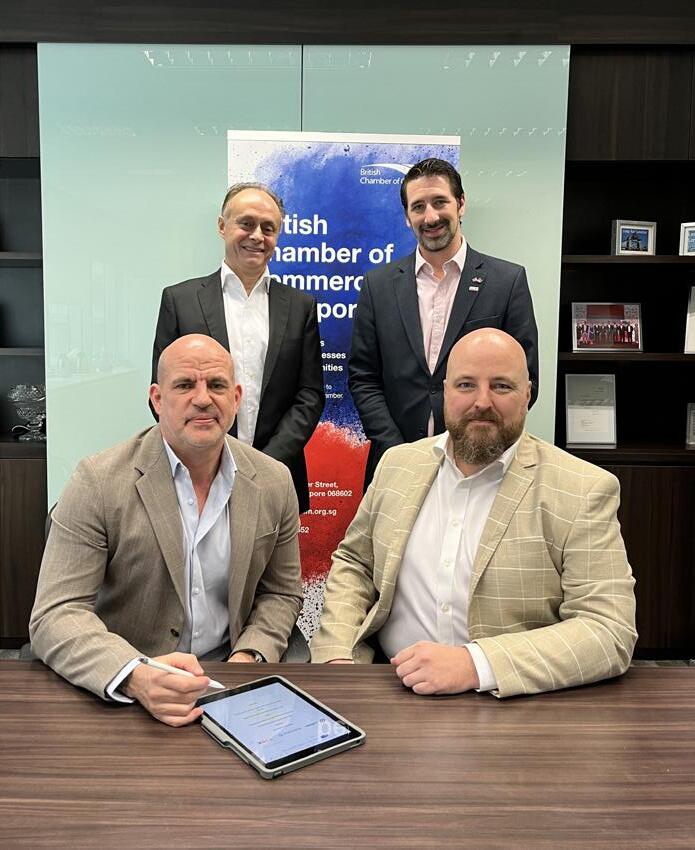
INSPIRATION FROM THE TOP
Learn a little wisdom from those at the top of their game
THE CONTENT MIX
Popular or recommended content to support your business and personal skills development, helping to generate new ideas for your business and team.


5
12 14 15
CONTENTS Issue 91 / March 2023 3 / orient-magazine.com
HOW TO CONTACT US
Address: British Chamber of Commerce Singapore 137 Telok Ayer Street #06-03 Singapore 068602
Web: britcham.org.sg
Phone: +65 62223552
Email: General: info@britcham.org.sg
Editorial & Advertising: marcoms@britcham.org.sg
Social: LinkedIn Instagram Twitter Facebook YouTube Flickr
Update your subscriptions: britcham.org.sg/newsletter
ORIENT MAGAZINE
MARCH 2023
EDITOR / Lucy Haydon
CO-EDITOR / Khairil Faisal orient-magazine.com
THE BRITISH CHAMBER OF COMMERCE EXECUTIVE TEAM
EXECUTIVE DIRECTOR / David Kelly
DEPUTY EXECUTIVE DIRECTOR / Lucy Haydon
HEAD OF EVENTS / Ashni Degamia
HEAD OF MEMBERSHIP / Clare Hakes
EVENTS EXECUTIVE / Caitrin Moh
MARKETING & COMMUNICATIONS EXECUTIVE / Khairil Faisal
FINANCE MANAGER / Radhika Chauhan
OFFICE MANAGER / Anna C Garciso
THE BRITISH CHAMBER OF COMMERCE BOARD
PRESIDENT / Damian Adams, Watson Farley & Williams LLP
VICE PRESIDENT / Haslam Preeston, DFI Retail Group
SECRETARY / Nick Magnus, Dulwich College (Singapore)
TREASURER / Christina Mason, PwC
Andrew Clark, AsiaWorks
Andy Marr, 8build
Angel Cheung-Horenfeldt, Standard Chartered Bank
James Nesbitt, Standard Chartered Bank
Lissy Vadakel, British Council
Lorena Paglia, Microsoft
Michael Buchanan, Temasek International
Michael Yap, Coventry University
Penny Murphy, ERM
Simon Bennett, Swire Shipping
Simon Middlebrough, Singapore Aero Engine Services Ltd
Suzy Goulding, MSL Group
Steve Firstbrook, Department for International Trade
Issue 91 / March 2023 4 / orient-magazine.com
Welcome to the March edition of Orient Magazine, in which we focus on gender equality during this month of celebrating Interational Women’s Day. We look forward to the British Chamber marking that day with a special lunch for over 260 members and guests, welcoming Ukrainian Ambassador to Singapore, Her Excellency Ambassador Kateryna Zelenko, and a selection of speakers brought together by our excellent Women in Business Committee.
The Road To Net Zero has taken a big step forward this month, with the UK and Singapore governments signing a Memorandum of Understanding to establish a Green Economy Framework
This is a truly positive and important development, as it provides a framework for even closer collaboration between the two nations on key areas such as green transport, low-carbon
President’s Message
energy and technologies, carbon markets and sustainable finance. We will be featuring more on the implications and opportunities of the Green Economy Framework in the next edition of Orient, the theme of which is sustainability.
In the past few weeks our network has continued to expand with new members (see page XX), we have hosted and participated in meetings with Enterprise Singapore, SportSG and the Ministry of Manpower, and we have delivered events on the UK’s trade plans, tax updates, Artificial Intelligence, and Scotland’s exceptional food and drink market. Coming up, we’ will be hosting a flagship Economic Briefing for members in April, diving into the topic of ESG, and preparing for our Annual General Meeting on 10th May.
I hope that you enjoy this latest edition of Orient, and I look forward to seeing you at one of our future events.
My best,
Damian Adams President British Chamber of Commerce Singapore damian@britcham.org.sg
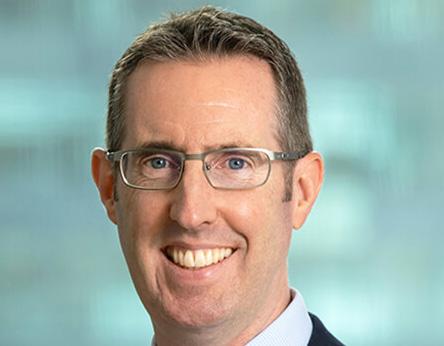
PRESIDENT’S MESSAGE Issue 91 / March 2023 5 / orient-magazine.com


/ AT THE CHAMBER
Three British Chamber member companies have come together to sign a tripartite agreement to support the digitalisation of trade, supply chains and logistics.
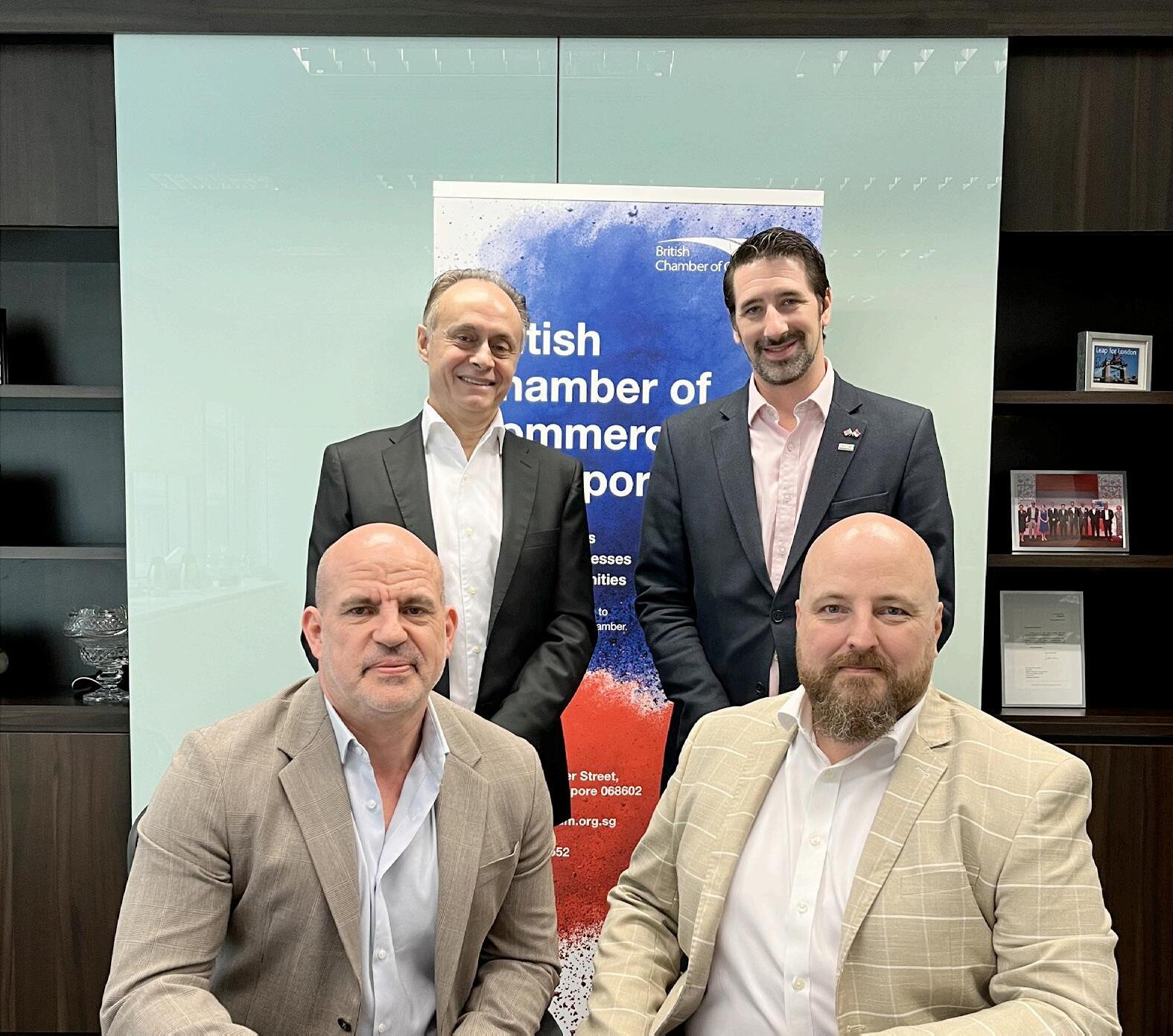
EMBRACING EQUITY INTERNATIONAL WOMEN’S DAY LUNCH

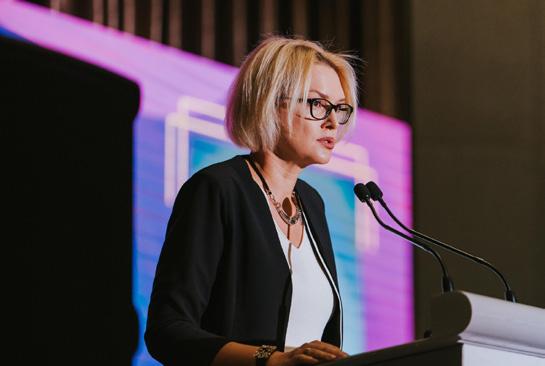
On 6th March 2023, our audience of over 260 guests listened to a special message from Her Excellency Kara Owen CMG CVO, a powerful keynote address from Her Excellency Kateryna Zelenko, Ambassador of Ukraine to Singapore, and insightful and inspirational presentations from Christine Amour-Levar, Naomi Vowels and David Jacob, finishing in a panel moderated excellently by Godelieve van Dooren. Congratulations to our Women in Business committee and events team for bringing another excellent IWD event together. Let’s continue to #EmbraceEquity together, all year round.
THREE BRITISH CHAMBER OF COMMERCE MEMBER COMPANIES SIGN TRIPARTITE AGREEMENT AIMED AT SUPPORTING DIGITALISATION OF TRADE, SUPPLY CHAINS AND LOGISTICS
LogChain (a cross-border data sharing and workflow platform), Hurricane Commerce (a cross-border data provider) and TMX Global (an end-to-end supply chain consultancy) have signed an agreement to jointly collaborate on a programme to build a plan of operations which sets to improve cross-border trade and digitalise supply chain and logistics industries, and help micro and Small, Medium Enterprises (SME’s).
The tripartite agreement between the three Chamber members seeks to build on, and champion, the UK-Singapore Digital Economy Agreement (UKSDEA) which was signed on the 25th February 2022 and entered into force on 14th June 2022. Modules in the UKSDEA include digital trade facilitation, customer cooperation, cross-border data flows and paperless trading.
David Kelly, Executive Director at the British Chamber of Commerce Singapore commented:
“The digital economy is a huge area of interest for the British Chamber and our members as technology provides more opportunities for cross-border trade. With the UK-Singapore Digital Economy Agreement entering into force last year, it is therefore really pleasing to see the UKSDEA so close in the rear-view mirror and three member companies of the Chamber driving forward to collaborate and build upon the agreement to support business.”
NEWS
NEWS Issue 91 / March 2023 8 / orient-magazine.com
SOUTHEAST ASIA’S LARGEST ENERGY STORAGE SYSTEM OPENS ON JURONG ISLAND
The largest energy storage system in Southeast Asia opened on Jurong Island on February 2nd, in another push for solar power adoption in Singapore.
The Sembcorp Energy Storage System has a maximum storage capacity of 285 megawatt-hours (MWh), enabling it to meet the electricity needs of about 24,000 households in four-room flats for one day in a single discharge. The facility spans 2ha – the size of nearly three football fields –and started operations last December. The Energy Market Authority (EMA) appointed Sembcorp Industries to develop it in June 2022. EMA required the energy storage system to be completed by last December in view of ongoing developments in the global energy market, said Ms Jeanette Lim, EMA’s director of industry development. This was so the facility could “provide energy, reserves and/or regulation services to enhance Singapore’s grid resilience and manage any protracted market and energy supply volatility”, she said.
“Its rapid response time to store and supply power in milliseconds is essential in mitigating solar intermittency caused by changing weather conditions in Singapore’s tropical climate,” Sembcorp and EMA said in a joint media release. “It can also provide reserves to the power grid, which frees up power generation plants to generate more electricity to meet demand, when needed.”
EMA chief executive Ngiam Shih
Chun said the energy storage system will complement the authority’s efforts to maximise solar adoption, as well as enhance the power grid’s stability and resilience. The deployment of the utility-scale facility means that Singapore has achieved its 200 MWh energy storage target ahead of time, he noted.
BEYOND THE CHAMBER
Business news and opportunities from around Singapore, the UK, the ASEAN region and beyond.
Singapore previously announced a target of deploying at least 200 MWh of energy storage systems beyond 2025 as part of the Singapore Green Plan 2030. Minister for Manpower and Second Minister for Trade and Industry Tan See Leng said solar power was Singapore’s most viable source of clean energy, and scaling up its deployment was a key initiative to decarbonise the power sector. The country has doubled its solar capacity since 2020, with more than 700 megawatt-peak (MWp) currently installed, added the minister, who spoke at the opening of the facility. Singapore aims to increase solar capacity to at least 2 gigawatt-peak (2 GWp) by 2030, equivalent to powering about 350,000 households a year. This is expected to meet around 3 per cent of projected electricity demand.
The Sembcorp Energy Storage System comprises more than 800 largescale battery units, whose charge and discharge cycles are centrally managed according to grid supply and demand. Sembcorp, which also operates an energy storage system fleet in the United Kingdom, has a battery storage portfolio of 709 MWh.
DONATE TO HELP FAMILIES IMPACTED BY EARTHQUAKES IN TÜRKIYE AND NORTHERN SYRIA
Two powerful earthquakes have struck in south-eastern Türkiye and northern Syria. Thousands of people are confirmed dead across Türkiye and Syria, with numbers expected to rise. Amongst those affected inside Syria are Syrians who are still displaced in their own country and living in flimsy shelters, tents and partially destroyed buildings.

The earthquake has destroyed people’s homes and local infrastructure—families are in urgent need of relief items and shelter. Severe winter storms are sweeping through the region—families need urgent protection from icy winds, snow, and rain. UNHCR teams are on the ground ready to respond where needed, and in support of government efforts. In Syria, we are already distributing emergency supplies: high-thermal blankets, mattresses, kitchen sets, plastic sheeting, jerry-cans, winter clothing and other life-saving items. In Türkiye, together with our partners we are liaising with authorities and assessing the needs that we can address, if required by government counterparts. We have stocks prepositioned and are working to mobilise additional supplies.
Corporates, foundations and individuals can all do their part to help, contact partnershipssg@unhcr.org to launch an employee giving campaign or make a donation.
NEWS
/
NEWS Issue 91 / March 2023 9 / orient-magazine.com
RECAP / HIGHLIGHTS
Catch up with the latest digital content and highlights. Photo galleries from our major events can be found on our Flickr channel, with upcoming events here
FROM THE KNOWLEDGE BANK
The Singapore Budget announced by Deputy Prime Minister Lawrence Wong on 14 February 2023 was designed to assuage the anxiety of many Singaporeans over rising costs and housing, and maintain Singapore’s competitive advantage in an increasingly uncertain and polarised world.
Klareco Communications pulled together some insights around the Singapore Budget.
1. Productivity - a recurring challenge - The government is doubling down on driving productivity to maintain the competitive edge of Singapore and safeguard the livelihoods of workers. Rising productivity as a government priority is not new. Minister Tharman Shanmugaratnam, during his time as Finance Minister, also made productivity a key thrust of his Budget speech in 2010 and attention on Singapore’s productivity growth continued well into mid-2010s.
In this latest Budget, the government has committed resources to prioritise both innovation and upskilling to enhance the country’s overall productivity and workforce quality. SGD 4 billion will be added to the National Productivity Fund, which provides grants for companies to invest in productivity, training and further education, and will now be expanded to include investment promotion.
2. Championing Singapore in a new era of internationalism - Budget 2023 announced an additional SGD 150 million via the SME Co-Investment Fund that will be invested in promising SMEs. The government also aim to catalyse an additional SGD 300 million of private investments to support Singaporean SMEs. A further SGD 1 billion will also be set aside to boost the Singapore Global Enterprise initiative that provide companies going abroad with more dedicated and customised support. The new scheme signalled the government’s clear intent to reward companies for specific innovation activities that help entrench Singapore’s competitiveness and position as the region’s IP hub.
ON THE BRITCHAM SINGAPORE PODCAST CHANNEL


Since our last Orient edition we’ve published two new episodes of our podcast, on the topics of marketing, leadership, diversity and inclusion.
Ep 157: Marketing Movers & Shakers - Collinson
In this episode, Suzy Goulding, Chair of the M&C committee invited Nicki Houghton, Regional Marketing VP, Asia Pacific at Collinson. Nicki oversees lead generation and brand awareness initiatives from communications and PR to digital campaigns.
Ep 158: IWD Special: Embracing equity and closing the gender gap
Our speakers Christine Amour-Levar, Co-Founder Women on a Mission and Founder HER Planet Earth, Naomi Vowels, Co-Founder and Director of givvable, Godelieve Van Dooren, CEO, Southeast Asia Growth Markets of Mercer and David Jacob, Chief Executive Officer, Marsh Asia provided their comments and insights where they open questions to the floor during the moderated panel discussion in this podcast.
Access all episodes on our website or from your favourite podcast player, including Apple Podcasts, Spotify, Google Podcasts, Amazon Music, Audible, and many more.
RECAP Issue 91 / March 2023 10 / orient-magazine.com

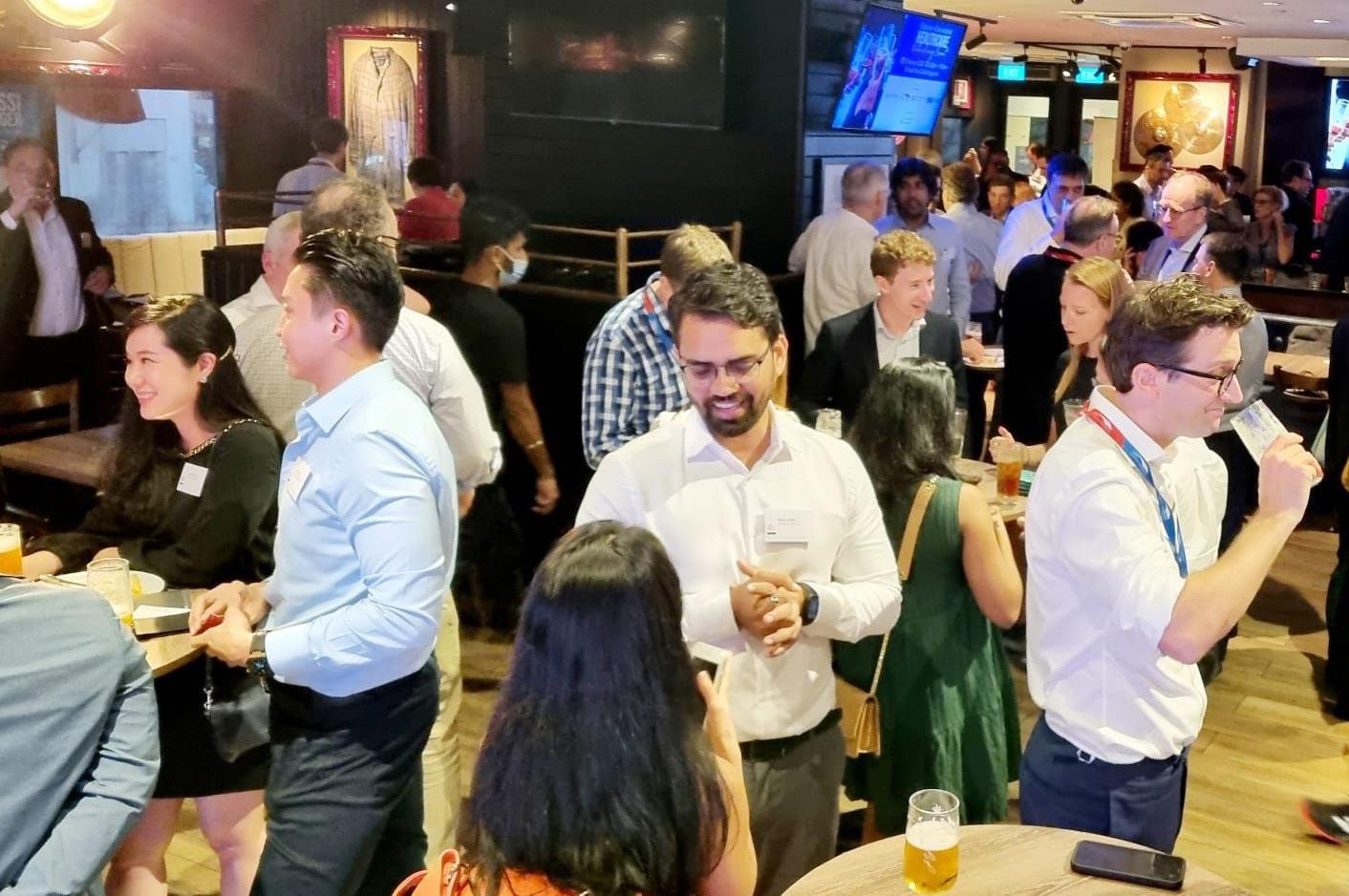
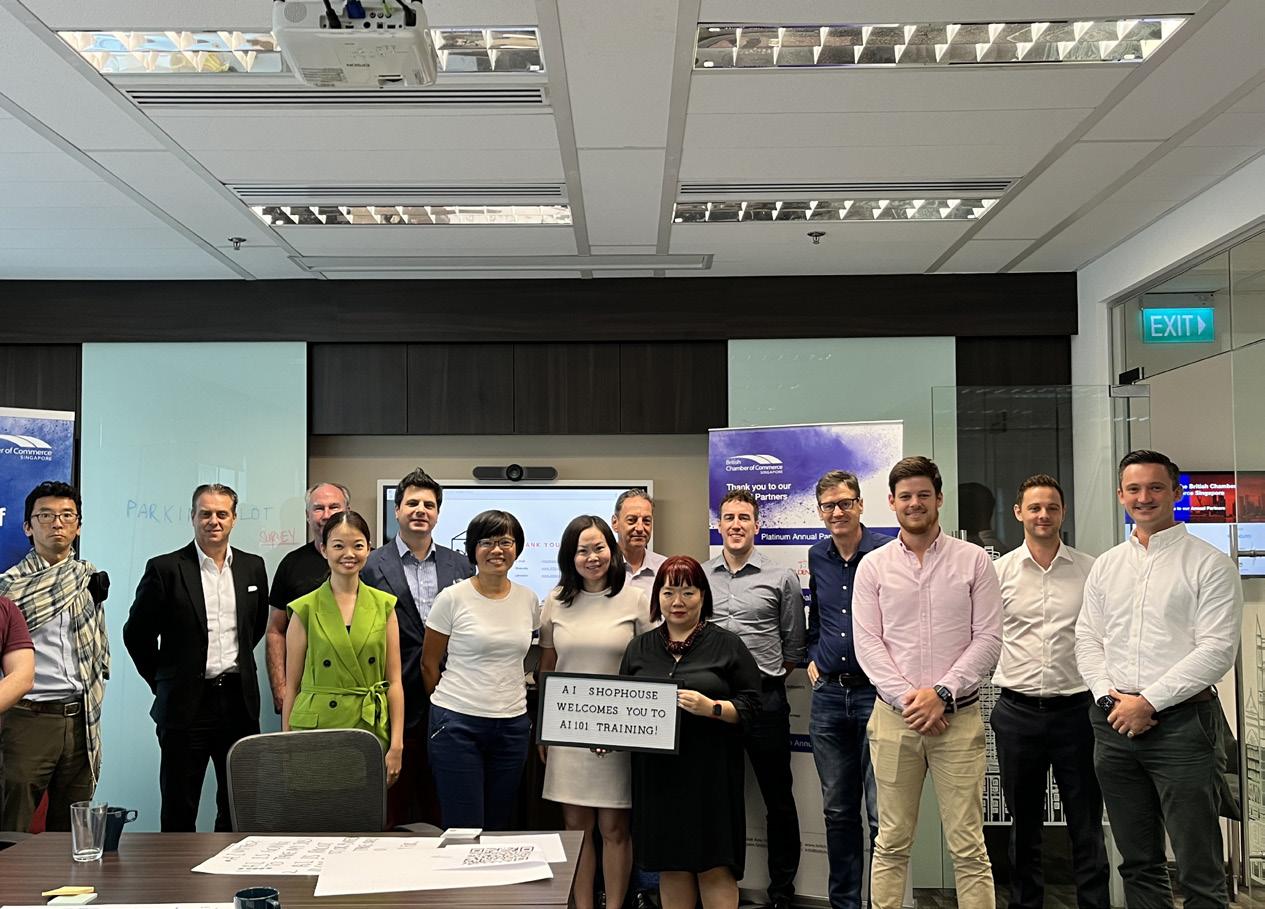
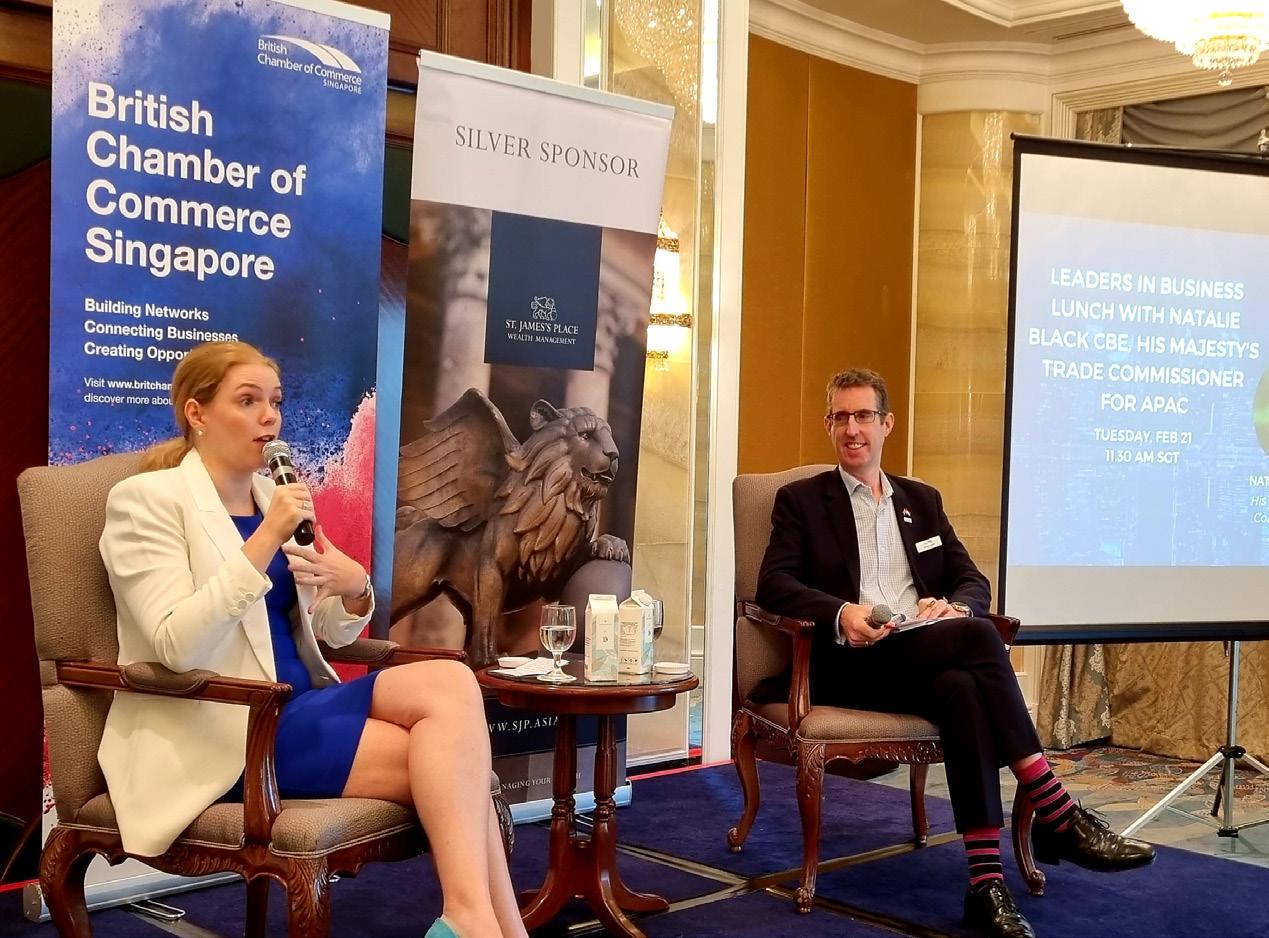 International Women’s Day Lunch, March 2023
Cross-Chamber Healthcare Networking Event, February 2023
AI 101: Mastering the Basics of AI, February 2023
International Women’s Day Lunch, March 2023
Cross-Chamber Healthcare Networking Event, February 2023
AI 101: Mastering the Basics of AI, February 2023
Issue 91 / March 2023 11 / orient-magazine.com
Leaders in Business Lunch with Natalie Black, February 2023
WELCOME TO OUR NEW MEMBERS
Since our last Orient edition in January 2023, the Chamber has continued to welcome a host of new member companies to our network. To contact them visit the Membership Directory on our website or reach out to our team.
HURRICANE MODULAR COMMERCE
Hurricane’s AI-driven, real-time data solutions cover the critical cross-border areas of data enhancement, duty and tax calculation, prohibited and restricted goods screening and denied parties screening.
Visit www.hurricanecommerce.com
CFTE
CFTE is a digital finance education platform training professionals from the largest institutions and governments. Originally in London CFTE operates globally in Abu Dhabi and Singapore with 300+ experts and 100,000+ alumni.
Visit https://courses. cfte.education/online-fintech-courses-certifications-sg/
REVOLUT TECHNOLOGIES
Revolut is a global financial super app with 25 million retail customers worldwide. The company processes over 330 million transactions a month and offers dozens of innovative products including peerto-peer payments, <18 accounts, money transfer and exchange, and trading (cryptocurrency, commodities and stock).
Visit https://www.revolut. com/en-SG/
OPEN COMPUTING SINGAPORE
Open Computing Singapore
Pte Ltd, local SME is focused on Green Data-Center & Telcos Sustainability Server Infra solutions to lower carbon-footprint, reduce water & energy consumption to achieve PUE 1.1 or lower and to re-use DC waste-heat (hot-water) for Circular Economy applications in commercial usage.
Visit https://opencomputing. sg/
XCL AMERICAN ACADEMY
XCL American Academy (XAA) offers high-quality, authentic, and accessible American education for children aged 2 – 14. The school strives to inspire the next generation of pioneers and empower them to leave a positive mark on our ever-changing world.
XAA follows the AERO and Common Core curriculum standards and equips students with the tools, mindset, and experiences they will need to be at the forefront of this change and to be agents of their own success.
Visit www.xaa.edu.sg
XCL WORLD ACADEMY
XCL World Academy (XWA) offers a rigorous and balanced education for students aged 2 to 18, beginning with our Nursery programme and continuing through the full International Baccalaureate (IB) continuum of studies.
This school believes in future-proofing your child by providing relevant skills and exposure and equipping them with the skills required for the jobs of tomorrow. Through the world-class curriculum and with the guidance of XWA’s highly experienced teachers, their students follow a self-directed journey to become skilled and empathetic young individuals.
Visit www.xwa.edu.sg
MEMBER PROFILES /
MEMBER PROFILES Issue 91 / March 2023 12 / orient-magazine.com
THE EXECUTIVE CENTRE
The Executive Centre (TEC) is Asia’s premium flexible workspace provider, opened its doors in Hong Kong in 1994 and today boasts over 180+ Centres in 33 cities and 15 markets. It is the third largest serviced office business in Asia.
Privately owned and headquartered in Hong Kong, TEC provides first class Private and Shared Workspaces, Business Concierge Services, and Meeting & Events facilities to suit any business’ needs.
Visit www.executivecentre. com
AME ASIE
AME is a French agency specialized in custom made products. For more than 17 years, AME develops with enthusiasm, products in relation with their clients brand image.
AME works with the best craftsmen, in France and in Asia, to offer to their clients the most high-end corporate goods such as: pens and stationery, golf accessories, leather goods, porcelain and glass items, silk and textile accessories.
Visit https://ateliers-ame. com/contact/
HORIZON RECRUITMENT
Founded in 2012 in Singapore by former lawyers with top tier law firm and in house experience, we specialise in headhunting lawyers globally for international law firms and in-house clients. Our clients include leading international law firms, global financial institutions and multinational corporations across a diverse range of sectors.

Visit https://www.horizon-recruit.com/
PEARSON EDUCATION SOUTH ASIA
At Pearson Education, we believe in the transformative power of education. We are committed to providing learning opportunities that help individuals unlock their potential and achieve their dreams.
Our comprehensive range of educational resources and services empowers learners of all ages and backgrounds to succeed in the digital age.
Visit https://www.pearson. com/asia
NEW MEMBERS
INSPIRATION FROM THE TOP

“Good leaders organise and align people around what the team needs to do. Great leaders motivate and inspire people with why they’re doing it.”
- Marillyn Hewson
INSPIRATION
FOR THE BOOKSHELF
INSPIRATION / THE CONTENT MIX
Popular or recommended content to support your business and personal skills development, helping to generate new ideas for your business and team.
THE FINE ART OF SMALL TALK: HOW TO START A CONVERSATION, KEEP IT GOING, BUILD NETWORKING SKILLS –AND LEAVE A POSITIVE IMPRESSION!
Help is on the way with The Fine Art of Small Talk, the classic guide that’s now revised for the modern era. Small talk is more than just chitchat; it’s a valuable tool to help you climb the corporate ladder, widen your business and social circles, and boost your self-confidence.

BUSINESS PODCASTS

FINANCIAL TIMES: BEHIND THE MONEY

From hostile takeovers to C-suite intrigue, Behind the Money takes you inside the business and financial stories of the moment with reporting from Financial Times journalists around the world.
FOR YOUR INBOX
MORNING BREW NEWSLETTER
Morning Brew informs, educates, and empowers the leaders and decision makers of today and tomorrow on the business world, money, and their career.

THE HIGH PERFORMANCE PODCAST
The High Performance Podcast brings you an intimate glimpse into the lives of high-achieving, world-class performers who have all excelled in their field with first-hand experiences and lessons to share. Find out what non-negotiable behaviours they employed to get them to the top and keep them there. Hosting every conversation is sports broadcaster Jake Humphrey and leading organisational psychologist Damian Hughes.

Issue 91 / March 2023 15 / orient-magazine.com
Established in 1925, Tanglin Trust School is the oldest British international school in South East Asia.
What motivated us then, motivates us now –to be the best school in the world.
Through our innovative approach to learning and dynamic teaching staff, Tanglin nurtures and inspires lifelong learners. Our students talk with passion about their school because they feel happy and valued. Tanglin is an environment where the desire to achieve grows.
As the only school in Singapore to offer A Levels and the IB Diploma in Sixth Form, students study a programme that suits them, ensuring they thrive and flourish. Our students consistently achieve exceptional results and go on to the world’s leading universities.

The community ethos we have built over the years enables every individual to fulfil their potential. At Tanglin we respect one another, celebrate successes at all levels and support each other to be the best we can be.
Find out more at www.tts.edu.sg and discover why Tanglin was named International School of the Year 2023.
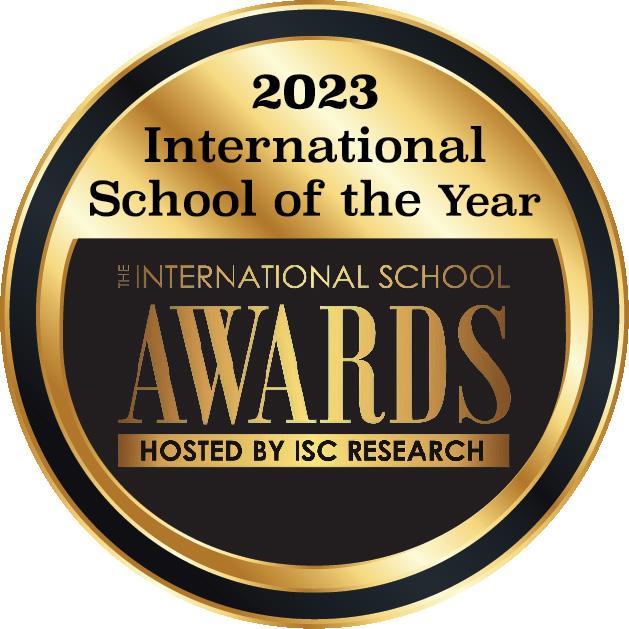
Inspiring future generations of changemakers.
At Dulwich College (Singapore) we believe in nurturing global citizens and well-rounded future leaders who are equipped to create solutions to the world’s challenges. Our goal is to encourage our students to Live Worldwise – to make informed choices, take inspired action and create positive impact. Our innovative and world-changing education is wellbeing-focused and balances academic excellence with a wealth of co-curricular opportunities that enable our students to discover their individual talents and passions.

To learn more visit Singapore.dulwich.org or call admissions at 6890 1003



Dulwich College (Singapore) CPE Registration Number: 201027137D. Period of Registration: 09 January 2020 to 08 January 2024. School Location: 71 Bukit Batok West Avenue 8, Singapore, 658966
KIRSTY POLTOCK, MANAGING DIRECTOR, SINGAPORE, JAC RECRUITMENT
 by Lucy Haydon, Editor Photos JAC Recruitment
by Lucy Haydon, Editor Photos JAC Recruitment
What are the latest trends in the recruitment sector for companies and those job-hunting should be aware of?
Despite all the retrenchments we saw at the end of last year, especially in the tech sector, Singapore remains very optimistic and upbeat about hiring. The tech , particularly cybersecurity, banking and financial institutions, logistics, FMCG, and healthcare industries continue to be growth areas within the market. There are some firms that are holding out on their business growth plans to closely monitor the economic outlook and how we might be affected. However, from all the clients we have been engaging with, everybody is quietly
optimistic and keen to grow their businesses this year.
For organisations that are considering monitoring the market and therefore taking a more cautious approach to their talent management strategy, there is an increased focus on retention and employee engagement. There is a noticeable pattern where companies are making a concerted effort to improve employee well-being by enhancing mental health support and awareness, promoting flexibility, and offering learning opportunities such as rotations or courses. These tactics not only help to increase employee retention but also enable the organization to invest in its workforce for future growth.
For jobseekers in this market, we are still seeing Singapore as a very startup-rich environment, which can offer increased opportunities. Things to consider when joining an organisation, especially a start-up, would be to understand what sort of exposure, and career development you will be able to gain to support your longer-term career growth. In a market where skills-based recruitment is a pivotal focus, this also offers you as the job seeker, the
opportunity to transition into different industries or roles to further your progression.
Many companies are currently offering contract-based roles as a key strategy for talent acquisition. It is worth noting that even if job seekers have not previously considered this type of employment, they should not overlook the potential benefits. Contract positions can provide a valuable platform for individuals to gain exposure and knowledge, similar to what one might experience in a startup environment.
Whether you are contemplating joining a startup or a well-established company, the most significant trend for job seekers is not solely focused on financial compensation and benefits, although they are undoubtedly significant factors. Rather, the critical areas that individuals consider are the exposure opportunities, new experiences, and options for increased responsibility as well as the ability to pivot into a different industry.
Are there any unique traits in recruitment for the Singapore and wider regional market?
MEMBER PROFILES / IN
FOCUS:
MEMBER PROFILES Issue 91 / March 2023 18 / orient-magazine.com
Singapore is often considered the hub of Asia, with the key industries being in the financial services, technology, and healthcare industries. Singapore as a hub offers the unparalleled opportunity to engage with stakeholders who are either regionally or globally focused.
The Singaporean job market has attracted significant investments from China, leading to the emergence of new firms in the technology and financial services sectors. With a perfect blend of Eastern and Western cultures, Singapore offers an exceptional opportunity for individuals to enhance their learning and growth, regardless of their origin.
Are there are any tips you would give new market entrants as they look to find talent for their new business, given the limitations around employment passes?
To entice the top talent, new companies entering the Singapore market need to possess a compelling vision, be agile, and act quickly. They should use their narrative, objectives, and vision to explain their reason for operating in Singapore and what they aim to accomplish. Besides highlighting the job role, they must also emphasize the growth prospects and career opportunities that come with working for their company. It is crucial for new entrants to make their journey captivating and motivating to counter the cautious career decision-making culture prevalent in Asia.
Companies should also be open to reskilling candidates who possess some experience but lack the required skills or qualifications. The skills-based recruitment approach that focuses on potential instead of experience or qualifications is becoming popular and advantageous for new market entrants.
For candidates, flexible work environments and hybrid working are still very much one of the top things that people ask for during the negotiation stage. Hybrid working is here to stay but every organisation has a different view on how to implement it. The firms that I see managing it well have a policy but leave it very much down to the managers or the individuals to make the right decision on flexibility but also ensuring productivity and progress is a key focus. It is a trust-based arrangement.
On the topic of flexibility and allowing individuals more support- last month the Singapore government announced that paternity leave is going to increase in 2024. This is an exciting step forward and really demonstrates the commitment at all levels
your organization,
you haven’t voiced your
terest or communicated your potential. Taking charge
in Singapore to embrace a supportive and flexible work environment.
You’ve spent over 17 years in recruitment, how has your career developed over time, and what recommendations would you give to fellow professionals in the sector?
I worked with my previous firm for just under 16 years and I’ve been with JAC Recruitment now for two years. In my previous firm, I worked in the UK and then in Singapore. I was quite clear from the start that I wanted to grow my career.

Fresh out of university, I was focused on job titles as my barometer of
success. I took what I would say was the road less travelled; I took the less desirable roles, offices or operations that were underperforming, even in inaccessible locations. I took on roles where you had to get your hands dirty, where you were not managing the status quo, but you could have the biggest impact. I also had some fantastic leaders who believed in me and pushed me.
These opportunities helped me develop the skills and mindset that has allowed me to be in the position I am in now. It gave me the confidence to say I am comfortable working in situations where you must be agile and you have to make decisions
“Don’t allow “no” to be the final answer. Failure is not always a dead end, but rather a chance to learn and grow. Sometimes, there may be significant opportunities available within
but
in-
of your destiny is my recommendation. It is about you owning your own development. I see so many people now asking what their company is going to do for them next... It is their responsibility to also go after what they want next.”
IN FOCUS INTERVIEW Issue 91 / March 2023 19 / orient-magazine.com
quickly. You cannot be phased by failure or too much pressure, and you must work a strategy to build the business and move forward. These experiences helped me hone my sales skills both as a recruiter and as a leader.
I am passionate about finding external mentors or peer groups to gain perspective outside of my day-to-day environment. I wanted to make sure that I was getting different perspectives, so I focused on attending different networking events, ensuring I connected with my peers in similar firms and sought an external mentor. This allowed me to challenge my own views and develop my mindset.
If you want opportunities and if you want to grow, you have to put yourself out there. It is not just about waiting for your company to put those opportunities for learning or networking in front of you. It is about you owning your own development. Don’t wait for your company to present learning or networking opportunities, instead take charge of your own progress. If you’re lucky, you might have a supportive boss who can help design
your training and development plan. Alternatively, your business’s L&D function might be excellent, but not everyone works in that environment. Therefore, it’s crucial to empower yourself and discover those opportunities on your own.
Do not allow “no” to be the final answer. Failure is not always a dead end, but rather a chance to learn and grow. As your circumstances change, it is important to clearly communicate your evolving requirements as an employee. What you needed as a fresh graduate differs from what you need as a parent, and the pressures of your job may have shifted since you started. However, by being transparent about your contributions, expectations, and goals with your employers, you can establish a mutually beneficial relationship.
To ensure that I am on track, I regularly take a step back and take a helicopter view of my personal and professional objectives. It is easy to get caught up in daily routines and checklists, without realizing the progress you’re making. Sometimes, there may be significant
opportunities available within your organization, but you have not voiced your interest or communicated your potential. Taking charge of your destiny is my recommendation. Try different opportunities, test yourself and put yourself out there. Your greatest opportunity to learn will come when you are outside of your comfort zone.
You have an interest in diversity, participating in some of our D&I activities since you’ve joined the Chamber with JAC Recruitment. As we focus on equality for this month’s International Women’s Day, how does the business approach gender equality?
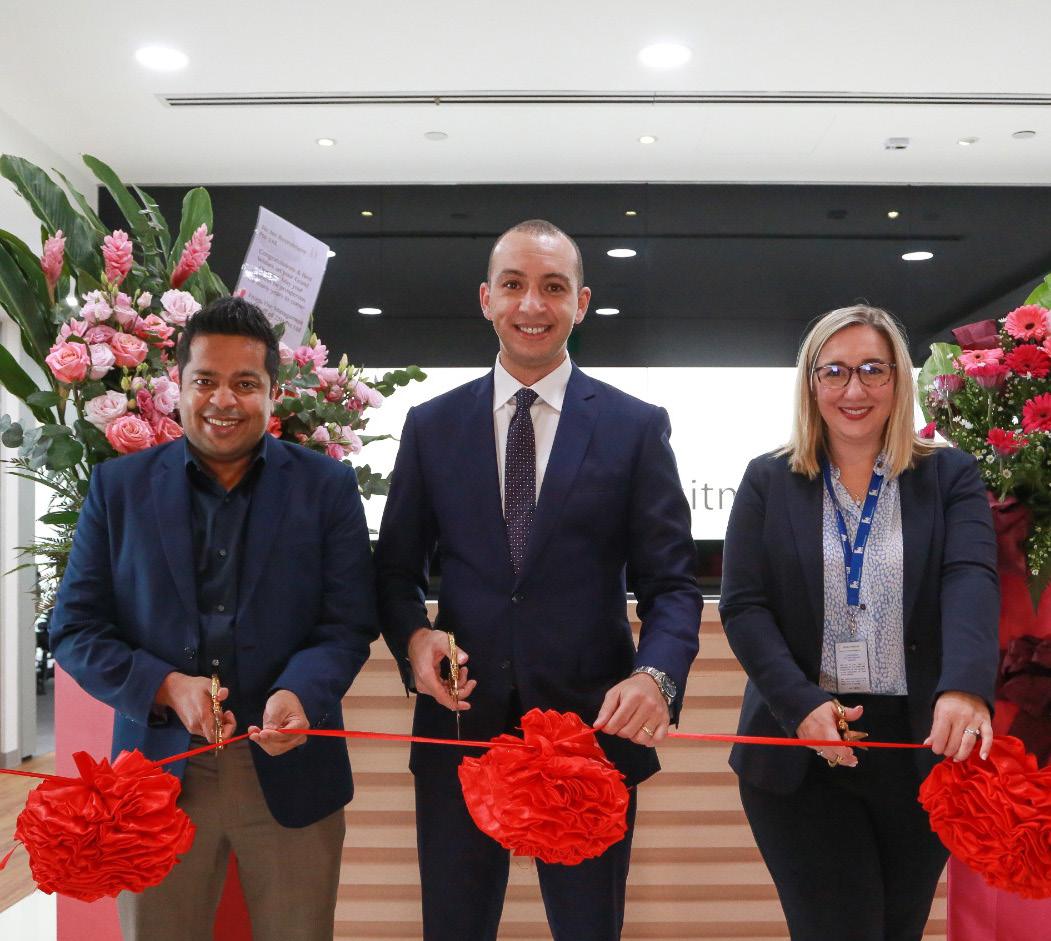
The co-founder of our business in the UK was a foreign woman who now serves as our Chairwoman and CEO. It is through her remarkable adaptability and resilience to change have set the tone for our business, which is not a conventional one. We embrace equality in every aspect, not just in terms of gender, but also sexual orientation, race, and religion. Our offices promote inclusivity through numerous messages and environments, and we commemorate significant milestones, such as International Women’s Day, mental health, and LGBTQIA+ awareness.
Approximately sixty percent of our management team is female, and we prioritise hiring based on potential and skills, rather than background or experience. Our promotion process is transparent and consistently based on key behaviours, in addition to hitting certain milestones. We have a mentoring scheme that supports future and experienced leaders, as well as a buddy system that helps new employees settle in well. We invest significantly in leadership training for all regardless of gender or background. Flexibility is also a priority to us, as we believe in providing opportunities for individuals to balance their work and life goals and pressures, thus creating a truly inclusive and equal environment. Lastly, our internal mobility scheme allows our employees to relocate across our 26 global locations. It is about equality and inclusivity for all areas.
MEMBER PROFILES Issue 91 / March 2023 20 / orient-magazine.com
About JAC Recruitment Singapore
JAC Recruitment Singapore is a part of JAC Group, a leading recruitment and business solutions consultancy with over 45 years of specialised recruitment experience and expertise in strengthening the growth of companies throughout Asia, Europe, and the United States. Originally founded in London in 1975, JAC Group is listed on the Tokyo Stock Exchange Prime Market (TYO:2124) and employs 1,700 staff across 27 locations. JAC Group is known for its strong regional network, specialised industry focus and detailed understanding of the local markets, which allows the business to deliver excellent service and source exceptional talent. In Singapore, we have over 50 specialised consultants that cover Banking and Financial Services, Corporate Services, Digital and Information Technology, Healthcare and Life Sciences, Industrial, Sales & Marketing, and Contract and Payroll Services. We also have a dedicated team that can assist with Client Advisory for the Japanese market. Our Singapore office has been operating for over 35 years now, we recently held our 35th birthday last year.
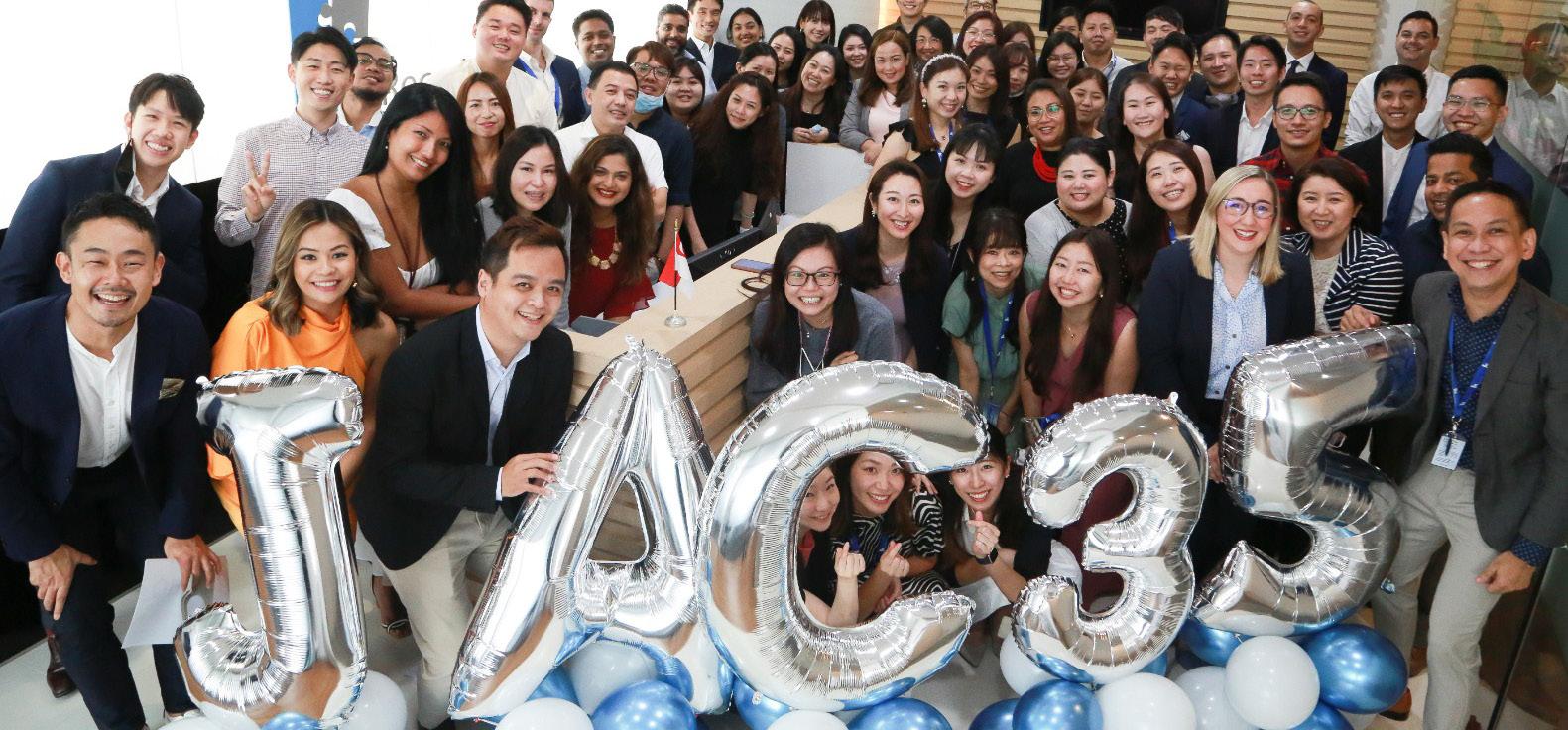
IN FOCUS INTERVIEW Issue 91 / March 2023 21 / orient-magazine.com
COMMENTARY / EMBRACING EQUITY
In this edition’s commentary, our Sterling Members share how their companies #EmbraceEquity, the theme for this year’s International Women’s Day.
What does equity mean for you?
For Barclays, equity means that all colleagues are considered equivalent in terms of their rights, benefits, wellbeing, obligations, and opportunities. COO for Asia Pacific and Middle East, and Country CEO for Singapore, Alex Harrison, explains: “It is a crucial responsibility that we all share, and we have taken significant steps to embrace equity in the workplace by advocating women’s development and advancement making Barclays a great place to work for all our female colleagues. We believe that embracing equity and creating an inclusive and supportive culture is not only the right thing to do, but also the right thing for business.”
At BT, Rodney Kinchington, Regional Managing Director, International Markets APJC and MEA Regions, believes embracing equity is about fostering a culture that champions equality while celebrating the differences that make us unique. “We help empower female colleagues in our workplace by cultivating an environment where every individual feels comfortable to be themselves and receive equal access to career opportunities. Approximately 45% of leaders in the AMEA region are female, and we aim to attain a diversity balance of 50/50.”
Natalie Clark, VP of Apparel Product Supply for VF Asia says: “We are aware that equity is not the same as equality and we are continually reviewing our people development processes and leadership training to ensure our people leaders are directing their efforts to the nuanced needs of each individual. By doing this, we can enable targeted support to under-represented groups within the organization.”
How does it play out in the workplace?
EY has several well-established programmes supporting women in the workplace, shared by Liew Nam Soon, Country Managing Partner for Singapore and Brunei and Asean Regional Managing Partner. The EY global gender accelerator program, Women. Fast Forward, provides support through education, mentorship, innovation and entrepreneurial opportunities. Additional examples include the EY Entrepreneurial Winning Women, the Global Women’s Business Athlete Network, the EY NextGen Women competition and EY Women in Technology.
Josephine Allen (She/Her), Chairperson of the Senior School DEIJ Committee at Tanglin Trust School, explains how the topics are a focus area both for employees and in the curriculum. “Diversity, Equity, Inclusion and Justice is one of the school’s strategic priorities, driven by a whole school committee who have both received and deliver DEIJ training. [The School] embraces equity for its students through its curriculum, pastoral structure, and co-curricular activities. The achievements of women are represented in subjects across the curriculum and the pastoral system supports teachers to challenge sexist behaviours.”
At Barclays, their gender employee resource group, Win, is dedicated to enhancing the work environment to attract, retain, and develop women at all levels and career trajectories. The network is designed to empower women, with the support of male allies, to navigate and leverage available resources and networking opportunities.
BT run regular engagement sessions where all female colleagues are invited
to exchange ideas on tackling challenges for future BT women leaders, and have recently implemented inclusion allyship training.
What
does progress look like?
For Alex Harrison, equity is a journey and a broader issue. “We’ve done a lot of work to engender an environment that is supportive in Singapore, and that’s something we’ll continue to do…. Beyond the bank, it’s also imperative that we improve and enhance the collaboration across various industries – the more collective and aligned scale that we have will be a key enabler to achieving a gender-balanced workforce.”
Liew Nam Soon explains that in 2022, 49% of EY’s Asean promotees were women, compared to 40% the previous year, reflecting the continued focus on enabling everyone to excel. “With women making up half the world’s population, ensuring that they are included in every conversation, decision and solution is not just a business but also a moral imperative to help the world get to a better place.”
Natalie Clark shares her experience as a female leader: “I feel fortunate to be able to work every day, surrounded by a diverse community, that is motivating and satisfying – however embracing equity needs to start with me and how I role model this with my team and my peers. Being curious and listening to one’s teams and their specific individual needs is the journey that we are progressing on at VF, to build a culture of inclusion, consistently demonstrate how we drive awareness on discrimination and take the action that is needed to #embraceequity.”
Read the full story from each company on our LinkedIn page.
COMMENTARY Issue 91 / March 2023 22 / orient-magazine.com

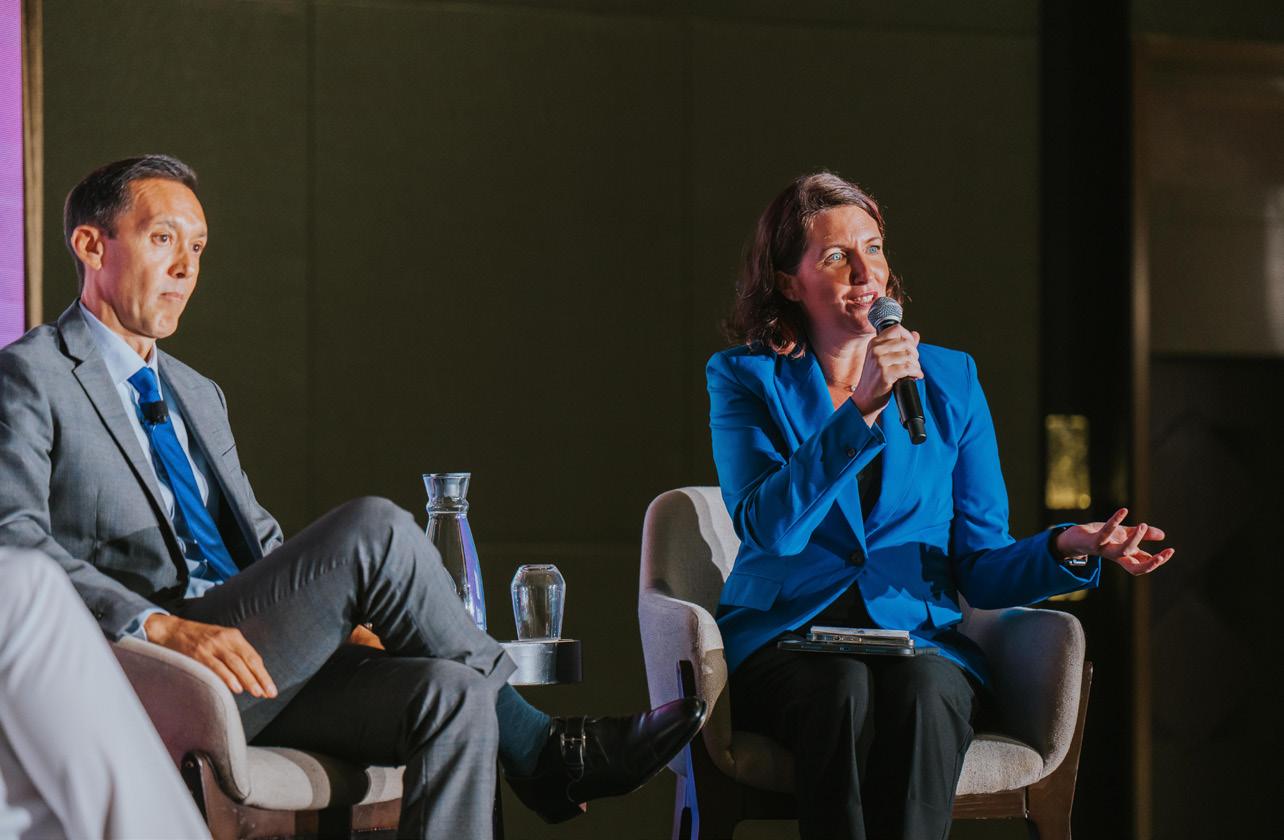
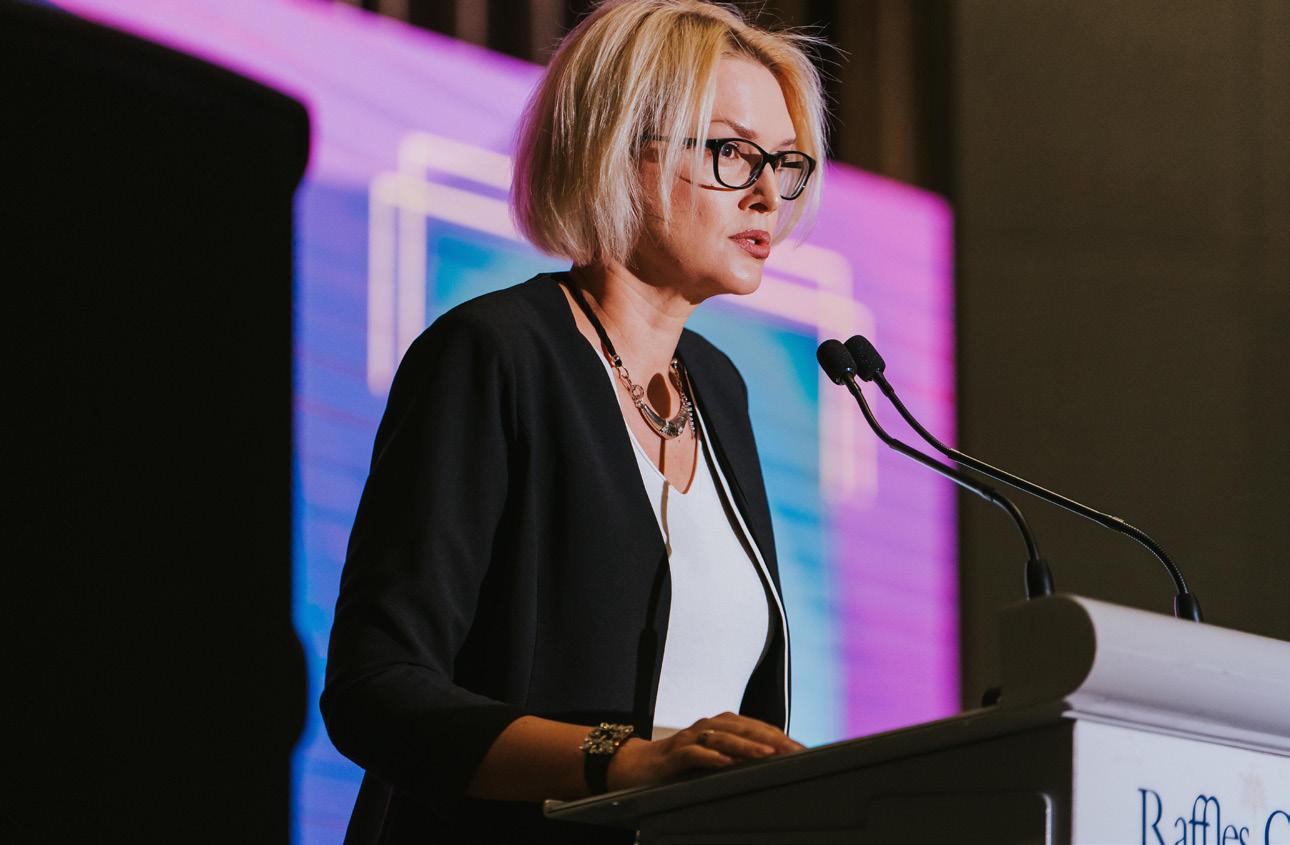

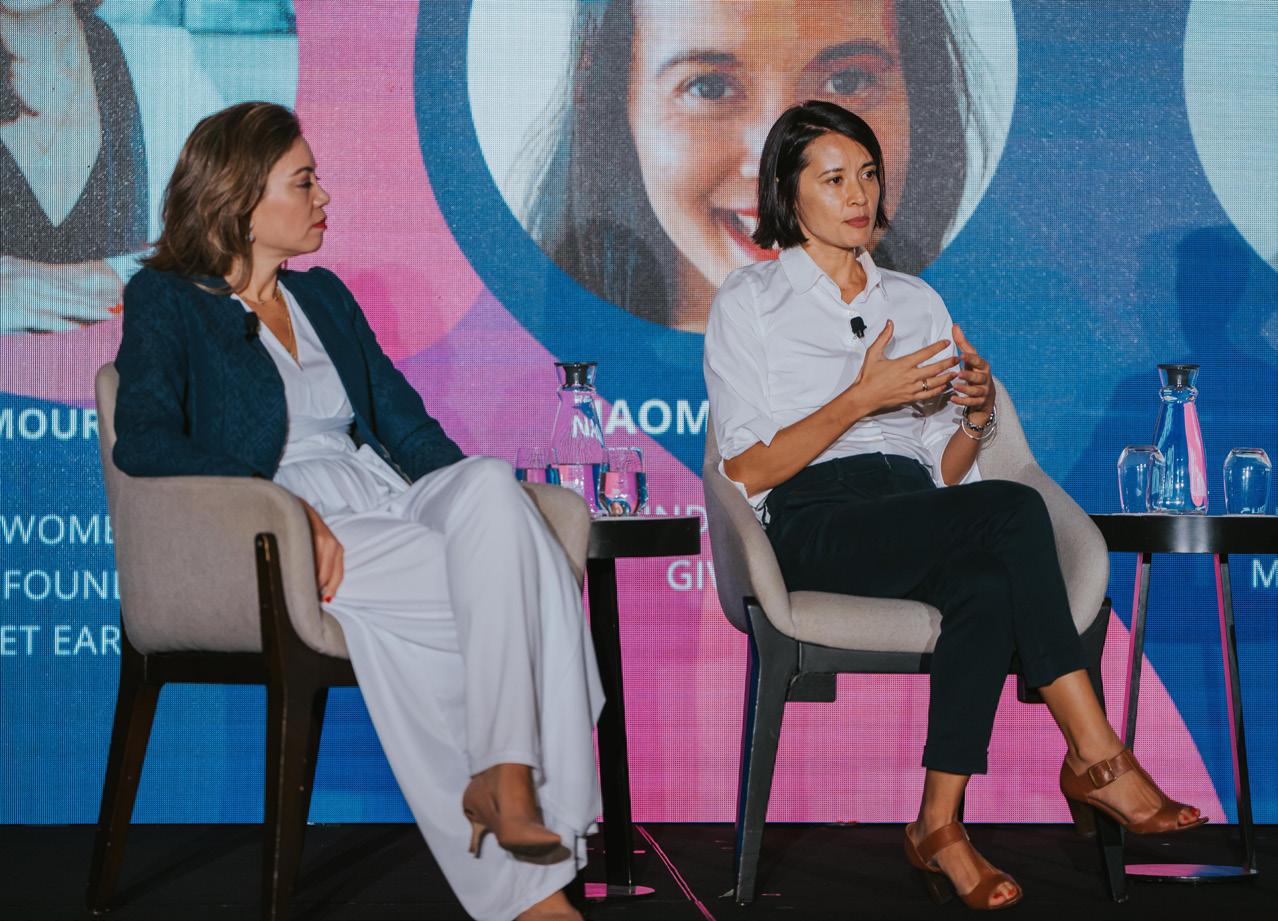
Issue 91 / March 2023 23 / orient-magazine.com
Highlights from our International Women’s Day Lunch, March 2023
CELEBRATING FEMALE ROLE MODELS IN BARCLAYS
― In recognition of International Women’s Day, Barclays invited senior leaders to share their perspectives.
As a working mother and people leader, how do you juggle intensive work demands in a highly regulated and fast-paced environment while managing your family responsibilities?
Suprita: Our boss, Sushir Lohia, taught us that banking is a ‘team sport’. Especially during fast-paced days with crunched deadlines, the team comes together, holding hands and carrying each other to the finish line. This positive energy is what makes me excited for work every morning, and it shows in the client outcomes we deliver. As a working mother, I would not be able to function without the constant support of incredible team members and senior partners.
What is one word of advice that you would like to give to all the working mothers out there?
Managing Director, Head of Risk Solutions Group, Southeast Asia and Australia
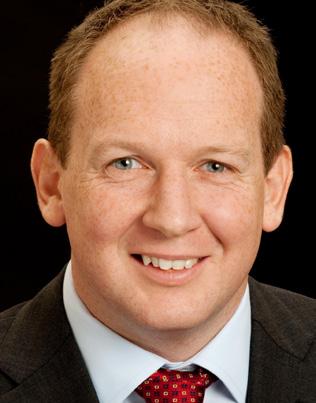
Suprita: Firstly, acknowledgement. There is increasing awareness of that amongst our leadership ranks and this acknowledgement goes a long way. Next, balance. No one is the perfect parent, spouse, boss and employee all the time. To use a statistical analogy, life as a working mother is a continuous non-linear stochastic optimization. I learnt that staying in the game is already winning half the battle. Finally, do reach out. There is no substitute for cultivating an ecosystem of well-wishers who can provide help and guidance when in need.
How did you start your career with Barclays and how has your career journey been so far?

Nurfa’iqah: I started my career in Barclays through the Singapore apprenticeship programme in 2016. It was a two-year programme with two rounds of rotation within Compliance and after completing it, I was hired as an Analyst in Compliance Assurance while studying for my bachelor’s degree. Subsequently, I moved to Surveillance and most recently to Markets Compliance.
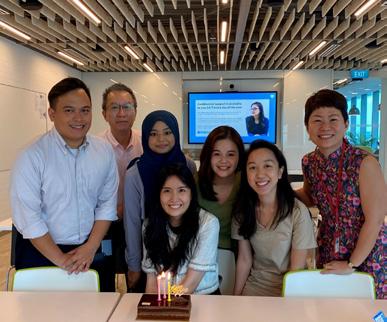
My time in Barclays has been an exciting journey – I have had the opportunity to work with a diverse group of people and form lasting friendships. I am also thankful for the support of my managers and the Compliance management team, who encourage development through internal mobility and their commitment to empower junior members of the team.
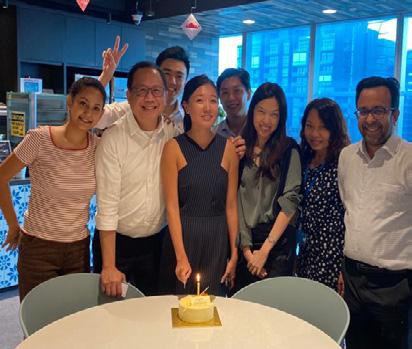
What would you like to share with all the young working ladies out there?
Nurfa’iqah: Do not be afraid to challenge yourself and explore new opportunities outside of your comfort zone. Always stay curious and learn the importance of adapting to changes. Having a supportive mentor or manager who believes in your potential goes a long way.
from
Assistant Vice President, Business Oversight Compliance, Markets
“Gender equality is a critical issue facing our business today. In the time I have been working in investment banking, I have seen first-hand how diverse teams deliver better commercial outcomes with a more balanced perspective. I firmly believe improving gender equality in not just the right thing to do, it is the smart thing to do. I am delighted to be an ally supporting women achieve career success and helping to drive that change.
Congratulations to women at all levels of our organisation who have been at the forefront of driving change… You are an inspiration to all of us! Happy International Women’s Day!”
DIVERSITY & INCLUSION /
Suprita Vohra (extreme left)
Nurfa’iqah Mohamed (third
right)
DIVERSITY & INCLUSION Issue 91 / March 2023 24 / orient-magazine.com
- Andrew Ashman, Barclays’ Head of Loan Syndicate, Asia Pacific & Chair of BritCham’s Diversity and Inclusion Committee
Sharon Teodoro (second
Director, Network Connectivity Service Operations, APAC
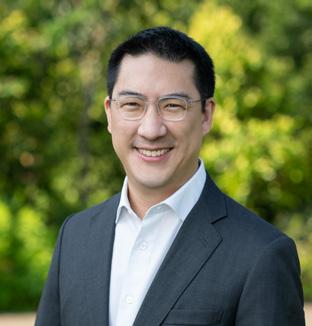
How would you describe your career journey in Barclays so far? How do you feel being a woman in technology?

Sharon: Throughout my career in Barclays, I have developed various technology operation teams for the bank, such as the Global Network Operations Center and the Production Operations and Command Center a year later, running a team of 100+ colleagues responsible for monitoring technology platforms.
In my new role as a Director in the GTIS organisation, I now wear multiple hats and face both challenges and opportunities to transform our service from being reactive to a proactive operations management. I am also excited to broaden my professional network by connecting and building relationships with other women in technology both in Barclays and externally. Technology is a male dominated industry and being a woman working in a male dominated environment is both challenging and rewarding. I hope to be recognized as a leader and a role model for younger women aspiring for leadership roles in technology.
What is one word of advice that you would like to give to all the aspiring women leaders out there?
Sharon: Take pride of what you do but remain grounded. Be proud of your team’s achievements. You can’t do it alone; you need a support system that you can lean on. Their achievements are yours and they are vital to your growth and success.
We understand that there is a regional Compliance Sponsorship programme in Barclays, can you share more with us? Why is there a need for it and what does the programme entail?
Linda: Women are often over-mentored and under-sponsored; mentoring provides advice, but sponsorship creates opportunities for success. The main objective of the programme is to deliver a platform to create opportunities for talented females within the Compliance department to further their career ambitions.
We have actively sponsored five female colleagues in Compliance, pairing them with members of the APAC Compliance Management team as their sponsors. The sponsors have used their strong influence to promote and advocate for these colleagues, by providing them with opportunities to be involved in high profile and visible projects. This holistic programme also consists of networking events, thought leadership conversations, active career development as well as HR support on career development tools and specially curated leadership training programmes.
What do you have to say to all the women in the workforce?
Linda: Nothing is too big to achieve or too difficult to overcome – be confident. When the opportunities come, grab them!
Linda Lim (centre) Director, Head of Compliance Services, APAC
“On Barclays Singapore’s 50th anniversary, I wish that our children live in a world where we’ve developed the muscle to deliver equality and equity across various dimensions of diversity. I hope it becomes a societal norm, rather than a personal choice. At Barclays Win, we contribute towards this through our mentorship program for females (rebooted in Japan, and scaled regionally) and optimizing our wellbeing policies to be more inclusive and relevant. We will continue to contribute towards creating a better future.
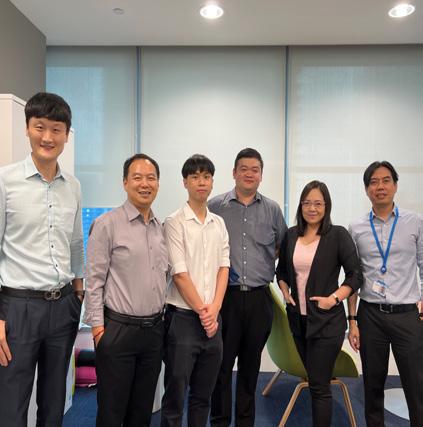
Supporting women in the workplace isn’t just a moral imperative, but a strategic advantage. From my experience, championing gender diversity and inclusion helps create a more inclusive workplace culture and men also gain from enhanced creativity, collaboration and performance that results from a diverse workforce. Towards this, as Barclays Win, we have been driving initiatives like mentorship program for females and optimizing our wellbeing policies to be more relevant and inclusive. We will continue to contribute towards creating a better future.”
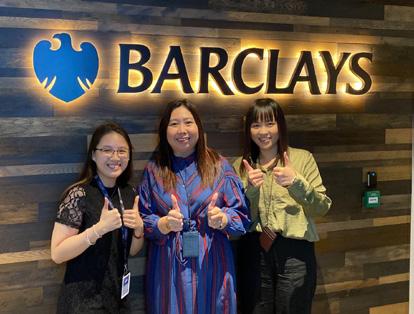 from right)
from right)
CELEBRATING FEMALE ROLE MODELS IN BARCLAYS Issue 91 / March 2023 25 / orient-magazine.com
- Alexander Chan, Barclays’ Corporate & Investment Bank Head of Strategy & Co-chair for Barclays APAC Win – The Gender Employee Resource Group
& INCLUSION / BEING HUMAN FIRST
FROM OPTICS TO IMPACT – DIVERSITY, EQUITY AND INCLUSION IN THE WORKPLACE
― The world has spent more than one billion USD dollars on Diversity, Equity and Inclusion (DEI) in 2022 alone… But has the focus been on IMPACT or OPTICS?
by Rukhsana Pervez Executive Director, Workforce Transformation, Deloitte Consulting Southeast Asia
Paviter Kaur Autar Singh Diversity, Equity and Inclusion Lead, Workforce Transformation, Deloitte Consulting Southeast Asia
Systemic change takes time, and the time is now
We are living in a changed world. The marketplace and its consumers are now demanding that organisations prioritise DEI as the new normal.
The collective call to action around social justice, sustainability goals and the COVID-19 pandemic has accelerated organisations’ need to adapt to the new concepts of work, workforce, and the workplace. The key to navigating this new reality is to increase social and business imperatives to promote DEI.
It’s not an easy problem to solve but it’s the right problem to solve.
Talent
80% of the world’s talent source is made up of women and people of colour.
Workforce
83% of millennials are actively engaged when they believe the organisation fosters an inclusive culture.

Revenue
15x organisations with high levels of racial diversity have revenues and sales 15 times higher than companies with lower levels of racial diversity.
Customers higher customer satisfaction for organisations with inclusive cultures. These organisations also have 27% higher profitability and 22% greater productivity.
DIVERSITY
DIVERSITY & INCLUSION Issue 91 / March 2023 26 /orient-magazine.com
Let’s get on the same page
DEI is more than just a ‘workforce’ strategy. It is a ‘way of being’ which influences how the organisation operates as an ethical business and cultivates a place where everyone can bring their true selves to work.
Diversity is a fact of life
The characteristics that we are born with and which we gain through both seen and unseen experiences make us different and diverse. Embracing diversity would drive innovation and increase well-being.
Equity addresses a systemic imbalance
The outcome of diversity, inclusion, and anti-oppression is one where all people have fair access, opportunities, resources, and power to thrive. Equity considers and eliminates historical and systemic barriers and privileges that cause oppression.
Inclusion is an act
Actions are taken to understand, embrace, and leverage the unique strengths and facets of identity for all individuals. This results in all parties feeling welcomed, valued, and supported.
The right thing to do
The move towards achieving DEI not only promotes fairness in the workplace but also makes good business
sense. Organisations enjoy a boost to their reputation which puts them in a positive light in the eyes of consumers and the talent pool.
Reasons to act now
• Significant rise in business interest with Environmental, Social and Governance (ESG) goals putting DEI initiatives to the forefront
• Equitable organisations are winning the war for talent
• World events have pushed the need for achieving better and more equitable societies – and Gen Z are demanding this at the workplace
• Longevity and aging populations require new and innovative ways to continuously sharpen cognitive performance
• Intense scrutiny as the world is watching
• Consumers want to associate themselves with brands that care about sustainability and DEI
Move from optic-centred to impact-centred DEI
A disproportionate impact on minority groups
In recent times, global movements
such as Black Lives Matter (BLM) and #MeToo have propelled the issue of DEI into the focus point of society. This has been further pushed as a societal agenda when COVID-19 was declared a pandemic in early 2020. Organisations across industries, sectors and sizes were pressured to make significant changes to foster an inclusive culture within the workplace. With so many changes being introduced to promote DEI, the workforce can reap the benefits. But why is this not the case?
The workplace remains a discriminatory and unfair place.
What impact have our efforts today really had?
This ongoing global crisis calls for strengthening the DEI agenda within all organisations. Inequities continue to inhibit women, people of colour, and the LGBTQ community from excelling in the workplace. It is now the opportune time for executives to pivot from an optic-centred DEI approach, which has limited results and impacts, to an impact-centred approach to effectively eliminate discrimination and promote a more inclusive culture.
50% of women in Asia have experienced some form of harassment and micro-aggression during the pandemic and continue to deal with non-inclusive behaviour at the workplace, even virtually.
40% of women in Southeast Asia surveyed shared that they were asked by interviewers about their pregnancy plans.
38% of global LGBT employees reported experiencing harassment at work.
25% of the Singaporean population is older than 55. While organisations focus on skilling initiatives for the “young” (Millennials and Gen-Zs) to navigate technological disruptions, such moves leave the older working population in state of limbo especially as the country raises its retirement age
Issue 91 / March 2023 27 / orient-magazine.com BEING HUMAN FIRST
Addressing the core issue
Some leaders consider DEI efforts to be a short-term fix to a specific challenge, but there should be a long-term strategy with a clear roadmap to improve the overall organisational performance and innovation. DEI can strengthen the social index of the organisation and in turn, boost the overall ESG efforts. According to a Financial Times report , organisations with higher ESG scores perform financially better than others.
With social issues and talent as the focus, a careful yet holistic approach is needed to put together a DEI strategy that meets organisational needs, while answering these key questions:
• What is driving the organisation to embark on this journey? Is it driven by external factors (such as ESG goals, etc.) or internal factors (surfaced through employee engagement surveys)?
• How does the organisation’s DEI strategy affect the employee’s full life cycle as opposed to standalone initiatives that only reduces recruitment bias?
• How are its DEI initiatives expanding from HR’s horizon into the overall organisational goals?
• What tools are the organisation using to measure overall impact of the DEI efforts?
Deloitte’s seven key headlines for DEI in Asia
Before we can achieve our goals of increasing diversity, reaching equity, or fostering inclusion, we need to understand where the biases occur. The DEI topic has been covered extensively in the western world, but what about Asia?
We interviewed business leaders, HR, and employees from over 50 organisations in Southeast Asia to understand the key issues faced by them. We uncovered the major DEI issues and have classified them into seven key headlines.
1) The answer is not 50:50
Not every organisation needs to achieve a “50-50” gender headcount target. The key is to understand the talent supply and demand and what is right for you. While industry ratios are a good indication, organisations should challenge themselves to push the boundaries.
2) Ageism and ableism need to be in the DEI equation
For the first time in history, the world has aged populations. Today, 1 billion people are aged 60+, and by 2100, it will triple to more than 3 billion people. Advancements in healthcare are seeing longer lifespans but cognitive capabilities deter after 40 years old. As the global workforce is
ageing rapidly, ageist and ableist culture is on the rise.
3) Choices over charters
One career path – multiple skills. Breaking down the skills and allowing flexibility to choose preferred skill pathways is a game changer. We can get closer to equity by making the price of skills transparent and putting the choice in the employees’ hands.
4) All paths look equal but are not
Let’s talk about gender and labour segregation. Women and minority groups represent a higher number in the support services, heterosexual male make up a large part of the core business functions, and core business functions have trajectory to CEO. Instead of focusing on hiring minority groups – focus on creating equal opportunities for them to succeed.
5) Performance versus potential – which is “fair”?
Performance can be measured, potential is subjective. A study of 30,000 people showed that women score higher in performance ratings but are rated lower for potential. The best indicator of future potential is past performance.
6) Culture growth, not fit
Having a “culture fit” in the past was important as company culture and employees were often homogenous. As companies diversify their business models, diversity of culture is key. Instead of looking to fit potential candidates into the company culture, employers should focus on “growing the culture” – promoting diversity of thinking and negating homophily. Focus on what is lacking –and intentionally look to find it.
7) Advocacy not mentorship
Mentorship is about providing guidance and support while advocacy is about having the power to influence career growth. However, in understanding these relationships, it becomes clear that not all career propellants have equal power. They are distinctly different, though necessary—and so is their ability to significantly change the course of a career and amplify profiles. Minority groups need advocacy, not just mentoring.
Get started on your DEI journey
Having developed and implemented DEI strategies across multiple organisations, we have identified four key shifts that will enable a holistic transformation and bring deeper levels of engagement and tangible business outcomes.
DIVERSITY & INCLUSION Issue 91 / March 2023 28 /orient-magazine.com
Our approach for a holistic transformation
While there is a growing awareness on the importance of DEI, the true challenge lies in translating that awareness into impactful actions and valuable outcomes.
Organisations can realise their DEI ambitions through a threestep approach: Assess, Design and Activate.
1. Assess
• Complete a comprehensive DEI assessment of the organisation.
• Examine the DEI landscape, identifying areas of strengths and opportunities.
• Conduct in-depth analysis of the organisation’s DEI maturity & biases across major organisational activities, such as the talent life cycle
• Reviewing all DEI talent practices.
2. Design
• Design a DEI strategy addressing DEI needs and overall business strategy.
• Develop the DEI strategy based on the organisation’s priorities and needs.
• Examine the Supply and Demand of the organisation’s industry and capabilities.
• Plot a roadmap and a communications plan to guide effective execution of DEI strategy
About Deloitte Singapore
3. Activate
• Once the strategy and roadmap are defined, activate the plans.
• Deliver experiences that guide participants in exploring biases and identify the strengths of the organisation’s culture and barriers to inclusion

• Empower leaders and employees at all levels to build more inclusive habits, foster inclusive work environments, and connect inclusion with business objectives.
• Reinforce diversity and inclusion culture and tackle systemic biases across formal mechanisms within the organisation’s talent lifecycle (attract, hire, develop, grow and engage).
• Support, manage, and assess all steps of the implementation cycle: DEI analytics strategy, communication campaigns, interactive DEI dashboards and tailored talent programs, etc
The opportunity for real impact is in your next decision
• Create shared purpose and meaning by broadening the narrative to diversity of thinking and inclusion.
• Build inclusive leadership capabilities.
• Recognize that progress will take a culture reset.
• Take middle managers on the journey.
• Nudge behaviour change by rewiring processes and practices.
• Strengthen accountability, recognition, and rewards.
• Pay attention to diverse employees and customers
In Singapore, consulting services are provided by Deloitte Consulting Pte Ltd and its subsidiaries and affiliates. This communication contains general information only, and none of Deloitte Touche Tohmatsu Limited (“DTTL”), its global network of member firms or their related entities (collectively, the “Deloitte organization”) is, by means of this communication, rendering professional advice or services. Before making any decision or taking any action that may affect your finances or your business, you should consult a qualified professional adviser. No representations, warranties or undertakings (express or implied) are given as to the accuracy or completeness of the information in this communication, and none of DTTL, its member firms, related entities, employees or agents shall be liable or responsible for any loss or damage whatsoever arising directly or indirectly in connection with any person relying on this communication. DTTL and each of its member firms, and their related entities, are legally separate and independent entities. Visit www.deloitte.com/about
Issue 90 / January 2023 29 / orient-magazine.com BEING HUMAN FIRST
A legacy of learning. Reinvented for today.
In an uncertain world, those who embrace change will be those that flourish. When young people are empowered to question their world, they are inspired to improve.
Discover how 175 years of British heritage has made us a school of future shapers.

Brighton College (Singapore). One of a Kind.
In-Person Open House on 5 May 2023 Register at brightoncollege.edu.sg/openhouse-registration
a d m i s s i o n s @ b r i g h t o n c o l l e g e e d u s g b r i g h t o n c o l l e g e . e d u . s g + 6 5 6 5 0 5 9 7 9 0
B r i g h t o n C o l l e g e ( S i nga p o re ) P t e Lt d C P E R e g i st ra t i o n N u m b e r : 2 0 1 9 0 4 88 4 D Pe r i o d o f R e g i st ra t i o n : 1 4 Oct o b e r 2 0 1 9 to 1 3 Oct o b e r 2 0 2 3
/ INCLUSIVE RECRUITMENT FOR EMPLOYERS – A GUIDE BY CIPD
― Structured and transparent processes that are fairer for candidates can enable employers to attract more diverse talent pools, and reduce the influence of bias. The CIPD’s latest Inclusive Recruitment guide details 5 key actions employers can take to make recruitment more inclusive.
by The Chartered Institute of Personnel and Development (CIPD)
Recruitment can be a very subjective process, demanding that hiring managers make complex and high-stakes decisions, often in limited time. This all adds up to make it particularly susceptible to unconscious biases and there is strong evidence that marginalised groups face discrimination in recruitment contexts.
Recruitment processes should be redesigned to reduce the influence of bias. Clear, objective, structured, and transparent processes are fairer for candidates, supporting more equal outcomes, and enabling employers to attract more diverse talent pools and to select the most suitable candidates for the role.

This guide provides recommendations for the four main stages of recruitment and a final step, including:
1. role design and the job advert
2. attracting diverse candidates
3. the application process
4. how candidates are selected
5. monitoring and measuring
Role design and the job advert
Make the role requirements clear, specific, and behaviour-based Clearly list the specific behaviours and competencies needed for a role. Instead of expressing requirements in terms of character traits, express them in terms of behaviours that can be evidenced (see Table 1 below for examples). We also recommend having as few requirements as possible and making sure they are absolutely necessary for the role. Particularly when advertising for existing roles, we recommend assessing the needs of the role as it stands today, rather than relying

DIVERSITY & INCLUSION
INCLUSIVE RECRUITMENT FOR EMPLOYERS - A GUIDE BY CIPD Issue 91 / March 2023 31 / orient-magazine.com
on previous adverts or specifications.
Remove biased language from job adverts
Biased language refers to words associated with identity-based stereotypes, such as masculine or younger-age stereotypes. Typically, they will make suggestions that create greater balance between masculine and feminine words; however, employers should mostly aim to reduce the number of masculine-coded words. When women see job adverts with more stereotypically masculine words, they are more likely to assume that the team is predominantly male and that they are less likely to fit in.
Avoid a requirement for ‘cultural fit’ or ‘person–organisation
fit’
Requirements around ‘cultural fit’ or ‘person–organisation fit’ are subjective and increase bias in hiring decisions. While often a predictor of performance, there is a danger that it can undermine diversity, particularly if ‘fit’ is taken to mean how similar a candidate is to those already working at an organisation. Only selecting people who are similar to ourselves can worsen an employer’s inclusivity and diversity, as it replicates the existing workforce. Organisations should use objective criteria for hiring instead of selecting for ‘cultural fit’.
Attracting diverse candidates
Place job adverts where they are more likely to be seen by marginalised applicants
Tailor where the employer places its job adverts to try to reach marginalised groups. To reach women, particularly mothers returning from a maternity or career break, it would be useful to advertise on websites that cater to them. There are also job boards that focus on particular protected characteristics, such as ethnicity, disability and sexuality, and for older workers.
Make the recruitment experience inclusive
Proactively ask applicants if they need reasonable adjustments during the recruitment process. Explicitly and proactively ask all applicants if they would like to request any once appli-
cations have been submitted. One approach could be to send a survey with a checklist of options as well as an open-text box for any adjustments that are not captured by the options provided.
Application process
Anonymise applications
Remove identifying information from CVs and application forms before hiring managers review them. This includes applicant name and contact details, and can also extend to removing ‘cues’, such as which schools or universities candidates attended. One way to do this is to ask candidates to fill out an anonymised application form instead of submitting a CV.
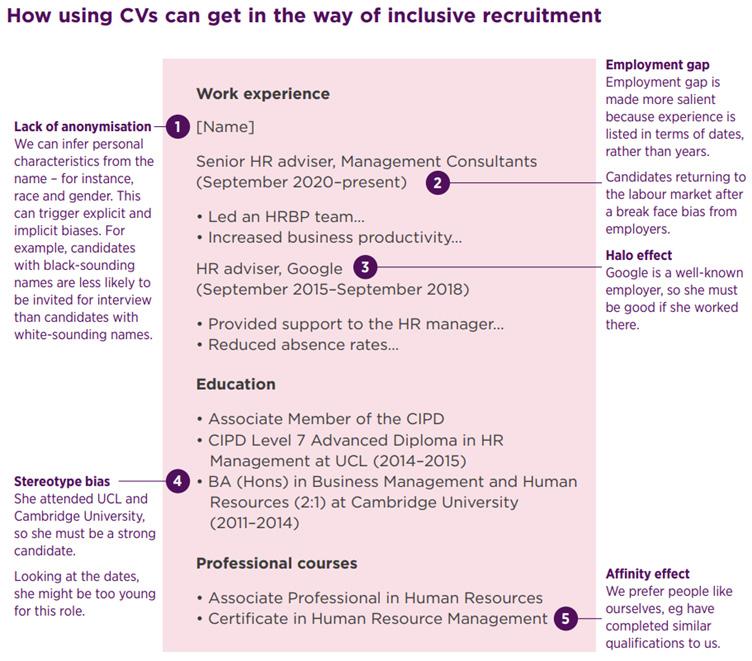
Avoid asking candidates about the dates of their employment history
Candidates returning to the labour market after a break face bias from employers. This may particularly affect women who take time out for caring responsibilities. It may also have a positive impact for disabled people, who are more likely to have gaps in employment, and older workers, who may find it harder to return to work following a gap.
Selection process
Reduce bias in automated sifting
Screening for specific keywords introduces subjectivity and bias into the screening process – for example, if a hiring manager looks for masculine-coded words such as ‘ambitious’ or ‘driven’. One report suggests that automated hiring systems may put some qualified candidates at a disadvantage, such as those with caring responsibilities or disabled candidates.
Include
more marginalised candidates in the shortlist
One study suggests that when there is only one woman or ethnic minority candidate on a shortlist, they are unlikely to be hired, while having more than one woman or ethnic minority candidate increases the likelihood that a candidate from that group will be hired.
Use skill-based assessment tasks in recruitment
Skill-based assessment tests have been found to be better predictors of performance on the job when compared with traditional approaches such as tests, reviewing job
DIVERSITY & INCLUSION Issue 91 / March 2023 32 / orient-magazine.com
experience, education, or unstructured interviews. There is no difference in scores between men and women on skill-based assessment tasks. However, care must be taken to design them well or they will result in an ethnicity gap. To reduce the ethnicity gap, use a number of tasks to assess a variety of skills and abilities and closely simulate a real-life situation on the job.

Use calibrations for hiring decisions
Calibration involves having multiple decision-makers come together to jointly review hiring decisions. For example, after a recruitment round, everyone involved could participate in a recruitment wash-up meeting to discuss each candidate and the different scores that hiring managers assigned to them. This helps to ensure that hiring managers’ assessments are standardised.
Monitoring and measuring
Set diversity targets for recruitment
Set targets for diversity across the recruitment pipeline, including the proportion of candidates from marginalised groups who apply, pass the sift, are interviewed, are made an offer, and are hired. Consider setting separate targets for different seniority levels or areas of the organisation. If using recruitment agencies or head-hunters, share targets with them. It is difficult to achieve meaningful change with a vague target such as ‘increase the proportion of women in senior roles’. Adding more specific details, including the baseline, percentage increase, and where you want to get to, as well as a specific target date, makes it more likely that a target will be successful.
Consider collecting qualitative data
For small sample sizes, consider carrying out qualitative interviews to understand experiences. This might involve speaking to recent new joiners about their recruitment experience or inviting candidates to provide feedback. Ask explicitly about their inclusion experience, for example with questions such as, ‘Would anything have made you feel more comfortable and/or supported during the recruitment process?’ Employers with large sample sizes can also benefit from collecting candidate feedback.
About Chartered Institute of Personnel and Development
We are the Chartered Institute of Personnel and Development (CIPD), the professional body for HR and people development. As a registered charity, we champion better work and working lives and has been setting the benchmark for excellence in people and organisation development for more than 100 years We have almost 160,000 members across the world, providing thought leadership through independent research on the world of work, and offering professional training and accreditation for those working in HR and learning and development. For enquiries on CIPD membership and learning and development solutions, please contact us at asia@ cipd.asia or call +65 6338 4528.
This article is an excerpt from the CIPD’s Inclusive Recruitment for Employers Guide. To read the full guide which includes further recommendations and case studies, click here The guide is produced in partnership with the Behavioural Insights Team. In particular, we would like to acknowledge Leonie Nicks, Shoshana Davidson and Sujatha Krishnan-Barman.
Issue 91 / March 2023 33 / orient-magazine.com INCLUSIVE RECRUITMENT FOR EMPLOYERS – A GUIDE BY CIPD
DIVERSITY & INCLUSION/ ONLY THE ADAPTIVE SURVIVE
Leading a deep technology company in today’s modern, fast-paced, and ever-evolving business environment is both an exciting and challenging endeavor, however it’s still all about the people.
 by Martina King Chief Executive Officer Featurespace Pte Ltd
by Martina King Chief Executive Officer Featurespace Pte Ltd
Our product-market fit was achieved after considerable trial and error. At the time there were very few machine learning products available in any sector, other than the academic environment the term wasn’t widely expressed. Finding the ideal market to offer a new and improved approach with results better than what had gone before takes time. Once we were introduced to the payment sector and with their encouragement we found all the relevant elements for industry disruption.
Our invention of Adaptive Behavioral Analytics achieves the greatest results on large, real-time /time series data where we are searching for anomalistic behaviors in vast normal or good behavior sets. We required an important problem to solve – a boardroom agenda item, with commercial relevance, a growing market and dissatisfaction with the incumbent technologies and most importantly to find a place where machine learning would be for the benefit of society; “machine learning for good”.
Malcolm Gladwell’s Tipping Point talks about the importance of Mavens in the change process. “Mavens are information specialists. They are the kind of people who are endlessly curious and adept at gathering and retaining information on a wide variety of (sometimes obscure) topics”. We identified and met with the payment industry’s fraud prevention Mavens, they understood our technology’s potential, we spoke the same language and we experimented together. Their requests were identical; to build technology better than the existing vendors, invest to maintain the lead and continue to treat us, your customers, with honesty and trust. And make sure your technology works! Our course was set and eight years later we are widely recognized as the world’s best technology for solving payment fraud and financial crime and enjoy some of the highest possible customer satisfaction scores.
Committing to an industry by promising to build the most effective mission critical technology meant we needed to create a workforce motivated to bring their ingenuitive best, every day.
Creating the Right Environment for Ethical & Commercial Scientific Discovery
Being part of the early adoption and launch of products and services available on the internet, Martina learnt that a duty of care to society is beholden on technology companies and technologists. In the race to bring new features during the early days of the internet, the goal to launch outstripped any governance. Governance procedures were not in place to consider the impact such technologies could have on users or society. She strongly believes in the importance of ethical decision-making when bringing new technologies to society.
DIVERSITY & INCLUSION Issue 91 / March 2023 34 / orient-magazine.com
Working in the creative industries, leading and motivating exceptionally intelligent talent led Martina to understand that people are even more complex and fascinating than their inventions. Her favorite quote is by Frances H Arnold, the Nobel prize winning scientist. The fifth woman in history to be awarded for chemistry. “And I have already learned that science is easy compared to dealing with people. People are really complicated”. Exceptional talent prefers to choose; what, how and when they spend their time, they usually wish to work on solving important problems for society in a mutually respectful manner.
A great deal is written about mission and values because they are important and they work, when introduced and managed well. As young companies grow and scale, especially IP heavy companies with long-term customers and equally long-term investors, the development of managers and leaders with a shared vision of the future is essential. No-one is born a manager; the skills must be developed. Commercial experience can be replicated. Many scientists enjoy the innovation process involving deep concentration and novel approaches. Martina is equally delighted by the technical or managerial progress of her team. Concentrating on the various phases of company development and preparation for the future leads to team members’ personal advancement and an organization ready for the next stage.
Delighting the Customer
Martina’s leadership has also instilled an environment throughout the company with the fundamental focus on delighting the customers. All Featurespacers are empowered to go the extra mile to ensure customers can achieve what they have set out to do. Those early day Mavens who took risks on a new approach are now recognized as experts because we committed to never let them down.
The strong partnership approach that Featurespace has created with its customers has reaped incredible results for the company and customers, from winning industry-recognized awards to co-creating case studies to showcase the collaborative effort to outsmart the fraudsters and
scammers. The best evidence of all being the loyalty the industry and customers have shown in return for the company’s efforts.
Leading with a Vision
The role of a software company leader today is to not only to steer the company in the right direction but also to be able to anticipate and adapt to the changes in industry and the world.
After 10 years Martina’s drive remains the same. Martina can often be seen talking to new teammates, asking about their interests, and sharing her passion for Featurespace. Her passion to use technology for the greater good, to always be open and transparent and to delight customers, flows throughout the business, its culture and into every department. When asked, Featurespacers will often describe their role, not as commercial, or technical, but as being ‘one of the good guys,’ playing their part in making the world a safer place to transact. The values of trust and honesty are as important to our customers as they are to our valued team members.
Managing The Downs
While not everything has been smooth sailing for Martina, she maintains a growth mindset and a belief that with her exceptional team she can overcome the various challenges they face. For all business leaders the past few years have been some of the most challenging ever; Covid19 pandemic, recession, software investment industry correction, remote working. Through all of these challenges Martina was laser-focused on one aim – to protect the Featurespacers and to ensure they were taken care of, wherever they were. their wellbeing and ,rom being set up for remote working to keeping a pulse on their mental health and well-being. And she did this collectively with support from the Senior Management Team – putting the managerial and leadership training through the years into practice.
Through all the changes, one thing has remained constant: Featurespace is making the world a safer place to transact through empowering the financial services industry with the
best technology to combat fraud and financial crime, and Martina is at the forefront of it leading a group of people who are recognized for their care, academic rigor, and commitment to solving real-world financial crime problems to outsmart risk.
“Through all the changes, one thing has remained constant: Featurespace is making the world a safer place to transact through empowering the financial services industry with the best technology in the market to combat fraud and financial crime. Under Martina’s leadership is a team at Featurespace who are recognized for their care, academic rigor, and commitment to solving real world fraud and financial crime problems to outsmart criminals.”
About Featurespace
Featurespace is the world leader in enterprise-grade technology that guards against fraud, scams, and money laundering. With a mission to make the world a safer place to transact, Featurespace helps banks and financial institutions protect customers and reduce risk and business operating costs by providing industry-leading machine learning, financial crime management solutions.
Over 70 direct customers and 100,000 financial institutions have put their trust in Featurespace’s technology including HSBC, NatWest, TSYS, FIS Worldpay, Barclays PLC, Marqeta, eftpos, Danske Bank, Akbank, Edenred and Permanent TSB.
Maintaining the company’s leading position in the industry is sustained by staying ahead of industry trends, by continuously innovating and bringing novel technologies to the market such as Adaptive Behavioral Analytics and Automated Deep Behavioral Networks. By listening to, and working closely with the industry, the business is well structured to quickly adapt to the changing needs of customers. Visit www.featurespace.com
ONLY THE ADAPTIVE WILL SURVIVE Issue 91 / March 2023 35 / orient-magazine.com
DIVERSITY & INCLUSION / BEYOND PAY EQUALITY – ADDRESSING THE PENSIONS GAP
Women tend to retire with pensions far smaller than those of men, which is largely a result of their lower average earnings. However, you can still ensure that your plans catch up with your dreams, though you might have to do things differently. In this article, Alexis Livanes shares advice for those with UK pension considerations.
by Alexis Livanes, Partner, Eight Wealth International, Financial Wellness Accredited
International Women’s Day is a global day that celebrates women’s achievements, raises awareness against bias and calls for collaborative action against inequality. In doing so, it seeks to highlight positive role models, increase female visibility, and accelerate gender parity.
The gender pay gap often hits the headlines, but we also need to address the lesser-known problem of the ‘pensions gap’ between men and women. Women tend to retire with pensions far smaller than those of men, which is largely a result of their lower average earnings. If you find yourself mid-career and unsure of whether you have enough set aside for retirement, all is not lost. Here are some of the things to consider, to make sure you still get to where you want to be in the future:
Identify your goals
Spend some time thinking about what kind of future you want.
Identify how you want to fund your retirement, as there are several different ways
Pensions
Ensure you are putting as much as possible into your UK pension if eligible or making investments offshore if you are away from home.
Property
Planning to downsize into a smaller home at a later stage could be another option, potentially leaving you with a lump sum to help fund retirement.
Businesses
Many entrepreneurs put everything they have into their business and hope that it could be sold one day to fund retirement or provide an annual income.
These may be viable options, but it’s important to be real-
istic about how much your business is worth today and its potential future value.
The government provides a small pension to eligible people for later life. However, at its current levels, is the UK State Pension enough to retire on? Or is it more of a top-up to your other income in retirement?
Having a conversation about retirement planning with your spouse will ensure you are ready for any eventuality. For most married couples, talking about divorce is probably the last thing that they want to do. However, money is one of the top reasons cited for marriage breakdowns in the UK. Many couples just do not speak about money or even make financial plans together, but the act of doing so can not only help to make your marriage last but will also ensure that you are well prepared should the worst thing happen.
Women face unique challenges and financial decisions throughout their lives, many of which will impact their ability to plan adequately for the long-term and in particular, retirement. In the UK, women currently retire with one-fifth of the pension wealth of men and are likely to be even further disadvantaged if they get divorced. This could be because women are, understandably, preparing for a joint retirement with their spouse, or that they might not be fully involved in the financial decisions being made with regard to retirement planning over the course of their working lives. By discussing as a couple your short, medium and long-term goals and how you will reach them, you will be better informed for all eventualities.
The number of unclaimed pension pots in the UK was estimated at £19.4 billion in 2020, which equated to 1.6 million pension pots earning nearly £13,000 each. If you are not currently residing in the UK, that’s not a problem. In the event of being out of contact with your former employer, you may be able to locate them using the government’s free pension tracing service. This can be found by visiting www.gov.uk/ find-pension-contact-details
DIVERSITY & INCLUSION
If you are looking to boost your retirement savings by finding a lost pension, we can help by applying the best financial planning to help you achieve your dream financial future. We can contact your pension providers with the information you supply, examine the performance, and advise an ideal strategy.
As a British expat, are you making the most out of living and working in Asia? By answering a couple of questions, you will receive an instant personalised report.
About Eight Wealth International

Eight Wealth International believe in the benefits of great financial planning. At one time or another, most of us will need to seek financial advice. At Eight Wealth International, a Principal Partner Practice of St. James’s Place Wealth Management, we have a wide range of expertise and knowledge, developed over many years, to help people – both individually and in business – fulfil their aims and aspirations, as well as offering that all-important ‘peace of mind’ for the future.
We offer a seamless service of distinct quality, professionalism and expertise, covering varying aspects of wealth management, all backed by the successful St. James’s Place Wealth Management Group.
The ‘St. James’s Place Partnership’ and the titles ‘Partner’ and ‘Partner Practice’ are marketing terms used to describe St. James’s Place representatives. Members of the St. James’s Place Partnership in Singapore represent St. James’s Place (Singapore) Private Limited, which is part of the St. James’s Place Wealth Management Group, and it is regulated by the Monetary Authority of Singapore and is a member of the Investment Management Association of Singapore and Association of Financial Advisers (Singapore). Company Registration No. 200406398R. Capital Markets Services Licence No. CMS100851. St. James’s Place Wealth Management Group Ltd Registered Office: St. James’s Place House, 1 Tetbury Road, Cirencester, Gloucestershire, GL7 1FP, United Kingdom. Registered in England Number 02627518.
BEYOND PAY EQUALITY - ADDRESSING THE PENSIONS GAP
FOSTERING THE NEXT GENERATION OF SUSTAINABLE INVESTING PROFESSIONALS IN APAC
The Asia-Pacific region is often described as critical when it comes to addressing global sustainability challenges, and for good reasons.
by abrdn
TheAsia-Pacific region is often described as critical when it comes to addressing global sustainability challenges, and for good reasons. The region accounts for about 45% of global greenhouse gas emissions, while being particularly vulnerable to the impacts of climate change. The COVID-19 pandemic has unfortunately slowed progress in APAC and the region is not on track to meeting the 2030 targets of the UN Sustainable Development Goals.
Despite this, there are significant opportunities, with $3.1tn of investments needed annually to reach net-zero by 2050 in APAC , which could bring along significant socio-economic co-benefits such as improved energy security, cleaner air as well as safer jobs and livelihoods.
However, there is no silver bullet to address these challenges, and this requires ambitious action and collaboration between a wide range of stakeholders. Among these, the financial sector plays a critical role.
Asset managers such as abrdn, institutional investors such as pension funds, insurance companies and sovereign wealth funds, but also individual retail investors – all can make a difference by choosing which companies to invest in and under what conditions. This role is increasingly well understood, as demonstrated by the increasing demand from investors and the constantly rising volumes of assets that are managed using various sustainable investment approaches.
However, the term ‘sustainable investing’ is multi-faceted, covering many different approaches and subject to varying interpretations. Some investors are also still reluctant to invest in such strategies, fearing higher risks or lower returns.
For abrdn, sustainable investing has been a reality for the past 30 years. What started with a focus on good corporate governance gradually expanded to cover the full spectrum of Environmental, Social and Governance (ESG) aspects, ranging from climate change and environmental degradation to human rights, working conditions and executive pay. We believe that companies with good ESG practices are better positioned and may be better investments over the long term.
In 2021, we launched the abrdn Sustainability Institute, APAC. Our mission is clear: to leverage our in-house expertise – both globally and in APAC – to develop investment solutions that are relevant to our APAC clients, and to create a community of knowledge on sustainable investing, thereby contributing to regional progress on the sustainability front.
One aspect we identified early on was the need to build the capacity of the next generation of finance professionals on sustainable investing. Regardless of seniority levels, candidates with sustainability-related experience are in high demand, across an increasing range of roles – from investment specialists to data analysts and compliance profession-
als. We sought to address this issue through different ways.
Leveraging on our internal expertise and working with the Investment Management Association of Singapore (IMAS), of which abrdn is a long-standing and active member, we developed a one-hour e-learning module focusing on the fundamentals of sustainable investing. While our initial target audience were university students in Singapore, we quickly realized there was also a demand for such training among our clients and prospects.
IMAS maintains an education portal called iLearn, which curates training programmes for investment management professionals to broaden and deepen their skills and expertise on a wide range of topics. Our joint abrdnIMAS module is available on this platform and is made freely available to students across a wide range of schools and universities in Singapore, as well as to selected clients. So far, more than 560 participants registered for the course and received their completion certificate, including more than 200 students from five educational institutions in Singapore. We are currently in the process of seeking accreditation by the Institute of Banking & Finance (IBF) under existing professional development schemes in Singapore.
In 2022, we also launched an innovative internship program through which we hired ten interns for sustainability-focused roles across various business lines in Singapore,
TALENT & LEADERSHIP /
TALENT & LEADERSHIP Issue 90 / January 2023 38 / orient-magazine.com
Malaysia and Australia and enrolled them in a course from the University of Cambridge Institute for Sustainability Leadership (CISL). As part of their roles, our interns provided us with recommendations on how to further improve on our corporate sustainability and sustainable investing practices.
The abrdn Sustainability Institute, APAC also organized our inaugural Sustainability Week in May 2022, a week-long series of events with clients across the region, culminating with our first Sustainability Summit. During this whole-day conference, we convened a wide range of professionals, from institutional investors to funds distributors, civil society, financial regulators and corporates, to exchange on sustainability and sustainable investing matters of relevance to the region.
With these steps – and more to come – we hope to contribute to capacity-building for the existing and next generations of investment professionals, in Singapore as well as in the wider Asia-Pacific region.
About abrdn
We offer investment expertise across all key asset classes, regions and markets so that our clients can capture investment potential wherever it arises.
By combining market and economic insight with technology and diverse perspectives, we look for optimal ways to help investors navigate the future and reach their financial goals.
And by putting environmental, social and governance (ESG) considerations at the heart of our process, we can invest for a better future. By ensuring the assets we invest in are ready for and resilient to a world in transition, we act as guardians of our clients’ assets.
The Course: abrdn-IMAS Sustainable Investing in Practice - An Introduction

Through this one-hour self-paced course, participants will explore ESG risks and opportunities, approaches to sustainable investing and their practical implications, key regulatory developments and recent case studies.
Learning objectives:
• Explore the environmental, social and governance (ESG) risks and opportunities that underpin sustainable investing;
• Understand the key drivers and different approaches to sustainable investing;
• Understand the practical implications of active ownership and net-zero investing;
• Explore the main sustainability regulatory developments affecting asset managers;
• Learn about the influence of sustainability on financial performance and returns.
We are pleased to be able to enable all Britcham members access to this course for free. Please use the code abrdnesg_britcham at https://imas.thinkific.com/courses/sustainable-investing-in-practice-an-introduction
FOSTERING THE NEXT GENERATION OF SUSTAINABLE INVESTING PROFESSIONALS IN APAC Issue 91 / March 2023
TALENT
& LEADERSHIP / BUILDING A STRONG SKILLS LANDSCAPE ACROSS SINGAPORE: BALANCING TECH WITH PEOPLE

― Singapore’s labour market has faced significant upheaval over the last decade. Traditionally highly skilled expats have been eager to be part of the country’s growth but this lessened in part due to repatriation during strict Covid lockdowns.
by Tania Bowers Global Public Policy Director, APSCo
Furthermore, the country is rightly focused on building its own skills as it continues to move away from manual and industrial markets, and further develops its highly skilled workforce. While we’re seeing workforce quotas focus on aiding this, the planned changes to immigration requirements could also create difficulties in attracting the global skills required to support the wider workforce development. Combine this with the loss of local talent to western economies for education purposes and a struggle encouraging these resources back into the country, and the skills challenges have become more acute.
However, Singapore is also a hub of innovation that can provide a wealth of opportunities for local and global businesses, particularly in the tech remit. In recent weeks we’ve seen reports that the country’s education sector is open to using ChatGPT in schools, the use of AI tools in healthcare and advanced AI fraud tools being utilised. In the recruitment sector, Singapore is home to the developers of AI Verify – a Governance Testing Framework and Toolkit that promotes transparency between companies and their stakeholders through a combination of technical tests and process checks.
TALENT & LEADERSHIP Issue 91 / March 2023 40 / orient-magazine.com
While Singapore is clearly being set up as a tech and AI hub, it needs skills to support this agenda, and therein lies the greatest challenge. There is a talent gap in the market, with the latest statistics from the Ministry of Manpower showing that unemployment levels remain low at just 2% in Q4 last year, while total employment figures increased for the fifth consecutive quarter.
Research from our Global Strategic Partner, LinkedIn, shows that the most in-demand skills last year were analytical and problem-solving attributes, as well as engineering and finance expertise. The most highly sought after roles paint a similar picture of highly skilled requirements, with software engineers, project managers and business analysts all ranking highly.
The same information from LinkedIn does suggest that hiring is starting to cool from the highs of 2021, but when we look at the skills that are growing in demand at the fastest rate, many are in short supply across the globe and particularly hard to source from the local Singapore community. LinkedIn’s data shows Machine Learning, Python (Programming Language) and Process Improvement experience are all in the fasted growing skills requirement category. Again, though many of these skills are in short supply. For example, a 2022 ISC2 Cybersecurity Workforce Study found that the Asia-Pacific (APAC) region is facing a troubling gap in its cybersecurity workforce. A report from digital infrastructure company, Equinix also revealed that 64% of business technology decision-makers in the country state a shortage of workers with IT skills as one of the biggest risks facing their industry
The Complementarity Assessment Framework (COMPASS), which comes into force later this year and is designed to ensure only highly skilled foreign talent is being brought into the country, could slow tech innovation. The ONE Pass route to work in Singapore provides a flexible route to skills access for employers, but it does create a level of uncertainty as it sits with the
individual rather than the employer, meaning that moving from role to role is easier.
There’s clearly a balance that needs to be struck, not just between the attraction and development of local and foreign talent, but also in the number of workers operating as ONE Pass Holders, if a strong and sustainable labour market is to be developed. Striking this balance is going to be tough and will take time, but with the right collaboration between employers, authorities, trade associations, the hiring community, and the appropriate implementation of technology and AI in recruitment itself, it is achievable.
As Alena Salakhova, Regional Director at SThree, and Chair of the APSCo Asia Representative Committee, recently explained:
“There’s a clear commitment from Government and local authorities to support the skills agenda in the country and we’ve seen investment in building future proof skills through individual training grants that we welcome. The challenge, though, lies in the execution of these initiatives longer-term. There need to be clear lines of communication between Government and employers to ensure that the workforce is being developed, trained and utilised appropriately. Yes, upskilling local talent helps, but what happens with these individuals afterwards is what’s key. We may have a sudden pool of newly skilled data analysts who have retrained from another role, but if they’re not then being hired because employers are nervous about their tenure, we will continue to face the same challenges.”
There needs to be a consideration of the whole talent ecosystem and how it can work well together both now and in the future. The use of data, insights and technology will be crucial in achieving this. Providing employers investing in growth in Singapore with clear skills statistics, using predictive analytics to stay ahead of talent trends and using this information to support a balance of local and the right foreign talent, will help the country strengthen its reputation as a hub of excellence in sectors including technology and AI in the coming years. But it will take a combined approach. As Alena explained, “We want to bring
together employers and Government bodies to help businesses adjust to hiring softer skills across the domestic workforce that can be developed to drive the professionalisation of this workforce even further.”
About APSCo
We are APSCo Global, an international trade body offering global services with local delivery to the international recruitment sector through our offices in Australia, Germany, throughout South East Asia and the UK.
Through our member services, we help differentiate the professional recruitment market by raising standards and delivering expert support and market intelligence to members of APSCo around the world.
“We want to bring together employers and Government bodies to help businesses adjust to hiring softer skills across the domestic workforce that can be developed to drive the professionalisation of this workforce even further.”
BUILDING
A
STRONG- SKILLS LANDSCAPE ACROSS SINGAPORE: BALANCING TECH
TRAVEL / TRAVEL 2.0: WE’VE RETURNED TO THE SKIES…NOW WHAT?
As the holiday season beckons, Asia has much reason to cheer as normality has finally (mostly) returned to the region.
by Todd Handcock, President, Asia Pacific, Collinson
From Taiwan to Japan, markets that were previously inaccessible to international travellers, have eased their stringent travel restrictions and reopened their borders, welcoming visitors once again into their fold. Equally, tourists are returning to Asia to soak up everything they’ve missed, from the recent Hong Kong Sevens to the Singapore Grand Prix.
Such is travellers’ wanderlust that they are even willing to cut back on non-essential retail purchases or forego their content streaming subscriptions and gym memberships to fund their travels. Airports across the region have become busy once more, and travellers are rushing to maximise their itineraries.
There is, however, a small catch.
Fuelled by the pandemic and the digital acceleration that came along with it, there has been a dramatic shift in the kind of experiences travellers expect from travel today. The modern-day traveller seeks out experiences that not only make their journeys
more convenient, comfortable, and complete, but also motivates them to come back for more.
What Makes Travel 2.0 Different from its Predecessor?
The pandemic stands as a pivotal moment in time that has altered the trajectory of travel.
For one, it has made us realise our shared love for travel and appreciate how easy it was to travel at a time when logistical hassles such as mask mandates, mandatory testing and inbound quarantines did not exist. But equally, it has triggered a global economic fallout that has resulted in significantly higher costs of living and, consequently, skyrocketing costs of travel.
Whilst there is ample evidence to suggest that only a small section of people is deterred by this and cautious to travel today, the rest (who are rejoicing the return to the skies) have changed the way they choose to travel.
Having been exposed to different facets of travel over the past two years, travellers in Asia Pacific are applying heightened value to certain travel benefits that were previously thought of as add-ons. Take airport lounges, for example – an experience that was once considered a luxury, has transformed into an expectation. Additionally, travellers are more willing to pay for luxury or more convenient travel experiences, such as upgraded seats and direct flights.
Raising Customer Engagement Through Heightened Travel Experiences

This tells us that travel today is no longer about going from point A to point B. Travellers are looking to be engaged differently; they expect more – not just from their journeys, but also from those who facilitate these journeys for them.
Beyond considerations of brand and sector, consumers are seeking far more sophisticated, status-enhancing, value-adding experiences person-
TRAVEL 42 / orient-magazine.com Issue 91 / March 2023
alised to them. They expect brands to deliver integrated online and offline experiences that add value to their lives – above and beyond day of travel. In today’s era of fragile brand loyalties, customers will return to brands that provide them the best experiences.
Brands have acknowledged this and are adapting their offerings to better engage and meet the needs of new-age travellers. For instance, an airport takeout solution from Servy (in which Collinson is a key investor) allows travellers to order their food and drinks online in advance and have them delivered directly to them within the airport. In another recent collaboration, Inflyter (which Collinson is also a key investor in) announced through their partnership with 3Sixty DutyFree that domestic travellers in the United States can shop online for their duty-free purchases and have them delivered to their location of choice. Even payment solutions are being adapted to make it easier for people to travel in today’s environment; for instance a trend towards offering ‘Fly Now, Pay Later’ allows travellers to undertake a journey without having to worry about any immediate economic consequences. A significant bonus in today’s financial climate.
Travel loyalty benefits offered by brands in the form of rational rewards, cashback, travel miles and points, continue to retain their appeal amongst a certain segment of travellers. However, they are often limited in their ability to foster meaningful connections with consumers in a way that can help evoke a strong sense of brand loyalty. To build recurring customer engagement and nurture lifelong loyalty, rational rewards must be balanced with emotional connections so as to make consumers feel special and valued.
Data Sharing and Partnerships are Key to Creating a Seamless Traveller Experience
To make the travel experience more meaningful, brands within the travel ecosystem are increasingly turning their attention to investing in the digital experience. However, in comparison to their retail sector peers, for instance (a notoriously innovative and
customer-centric sector), brands in the travel industry are falling behind.
A study by Collinson suggests that nearly 93% of consumers today are eager and open to building closer, emotional bonds with their favourite brands. An additional report also indicated that 61% of consumers are comfortable with companies using their relevant personal information transparently to offer them bespoke benefits.
Yet, despite consumers’ willingness to engage, the future investments that brands in the travel and hospitality sector plan to make are far from adequate. Our recent research showed that only 38% of brands across Australia, Hong Kong and Singapore are planning to invest in customer experience; 31% in data management; and 61% in technology infrastructure.
With travel becoming increasingly connected, it is now critical for brands in the ecosystem to work collaboratively with each other to drive seamless, integrated consumer experiences. Airports, for one, are investing in creating an interconnected traveller experience, driven by technology and data, to enable a frictionless experience.
Take market-leading airport experiences programme, Priority Pass, for instance – owned and operated by Collinson; it provides end-to-end journey support – over and above lounge access – to our members. Members have the option to pre-book essential travel services, such as ground transportation, before arriving at the airport. Not only does this help make each airport journey seamless, pleasurable and stress-free, it also benefits other brands in the travel ecosystem by connecting them to the traveller and enabling them to maximise their revenue streams.
Futureproofing – Welcome to the Era of Collaboration
For the industry to gain strength and be in a better position to meet the evolving needs of modern travellers, brands will need to come together to form an ecosystem where together, it identifies mutual customers and
shares anonymised data with each other. This ultimately will enable brands to curate and deliver more unique, timely and relevant experiences for their consumers.
As travel continues to pick up momentum, we’ll need to say farewell to the days of the industry operating in siloes and welcome an era of collaboration One where we forge strong partnerships to deliver personalised experiences that consumers expect and unlock data and insights to accurately understand their ever-evolving preferences; continuously adding value over and beyond the day of travel.
About Collinson
Private ownership means we can focus on the values that are important to us. These drive everything we do. They result in us acting with integrity and agility while making long-term investments and decisions. They keep us innovative and importantly, they help us to deliver a better customer experience.
Collinson’s journey started over 30 years ago, when our chairman, Colin Evans, was Managing Director of IAPA, a global travel benefits business with a history stretching back to 1963. Colin took ownership of the company in 1985.
With the development of new products and innovative services, the Collinson we know today soon began to take shape. Once formed, Collinson was further strengthened by the acquisition of established companies that allowed us to expand on our offerings.
TRAVEL 2.0:
43 / orient-magazine.com
WE’VE RETURNED TO THE SKIES...NOW WHAT?

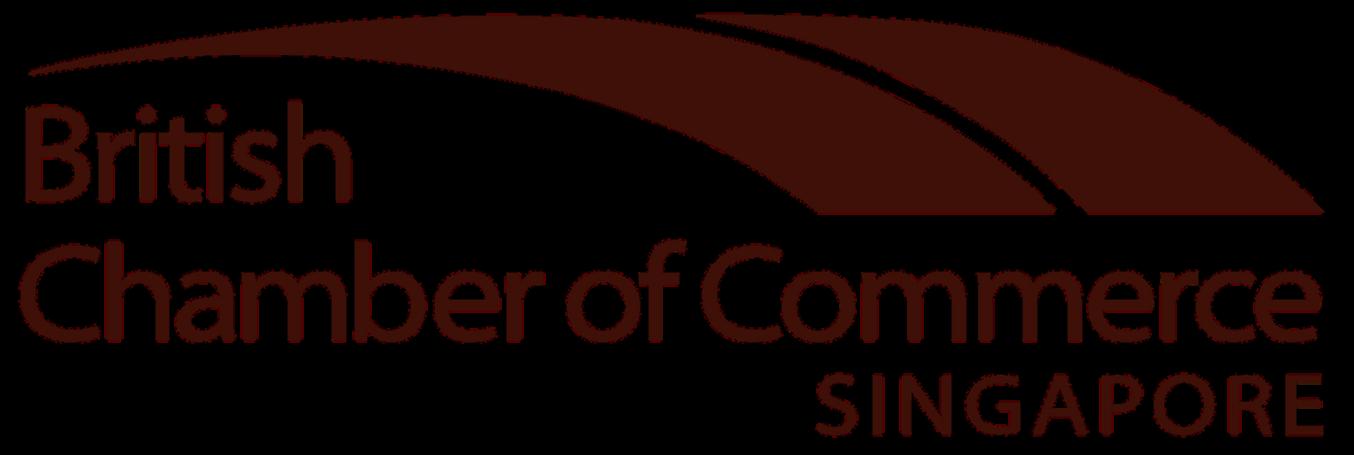
Member Discounts ENJOY DISCOUNTS ON TRAVEL, F&B, RETAIL, SERVICES & TRAINING britcham.org.sg/member-discounts

















 International Women’s Day Lunch, March 2023
Cross-Chamber Healthcare Networking Event, February 2023
AI 101: Mastering the Basics of AI, February 2023
International Women’s Day Lunch, March 2023
Cross-Chamber Healthcare Networking Event, February 2023
AI 101: Mastering the Basics of AI, February 2023













 by Lucy Haydon, Editor Photos JAC Recruitment
by Lucy Haydon, Editor Photos JAC Recruitment















 from right)
from right)






 by Martina King Chief Executive Officer Featurespace Pte Ltd
by Martina King Chief Executive Officer Featurespace Pte Ltd














